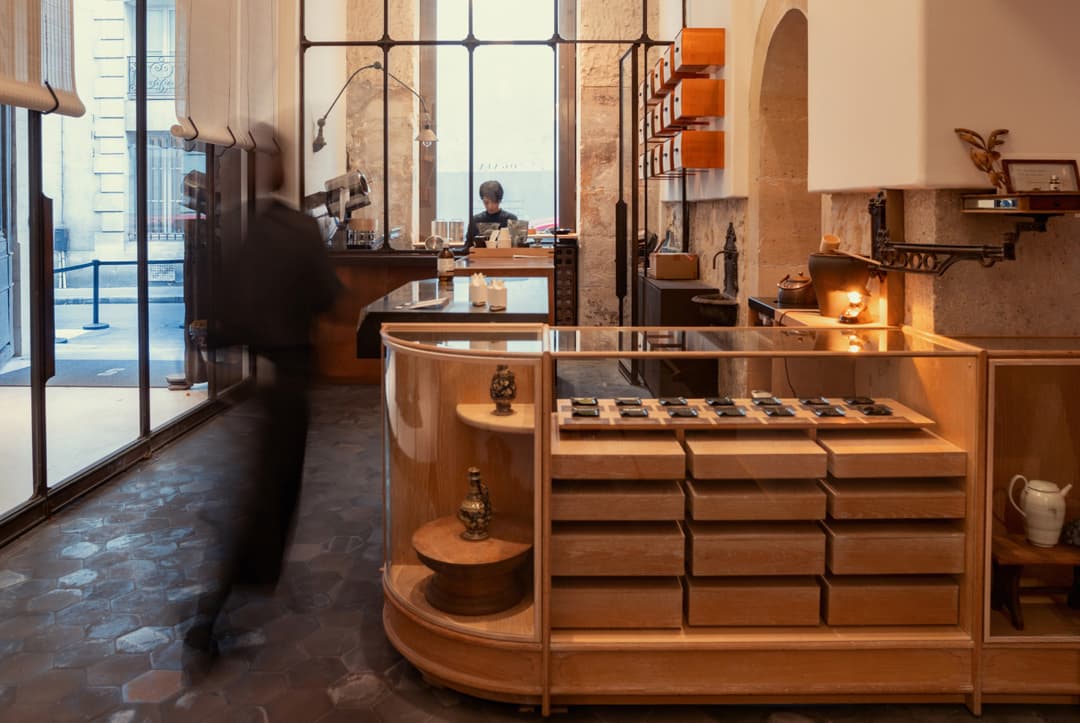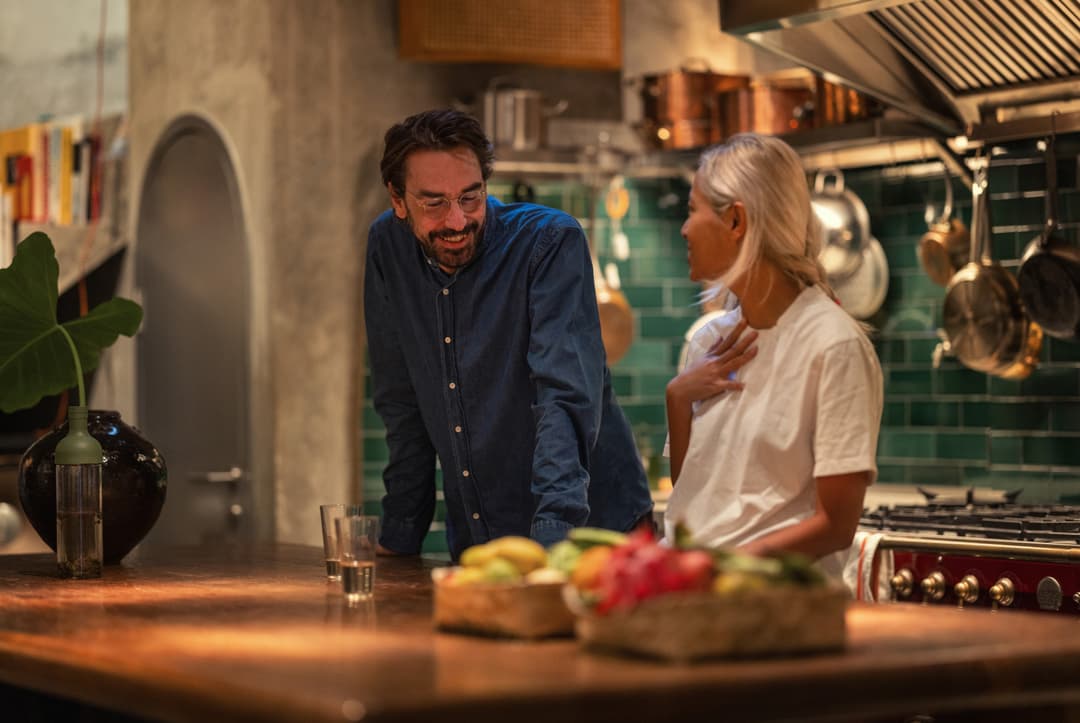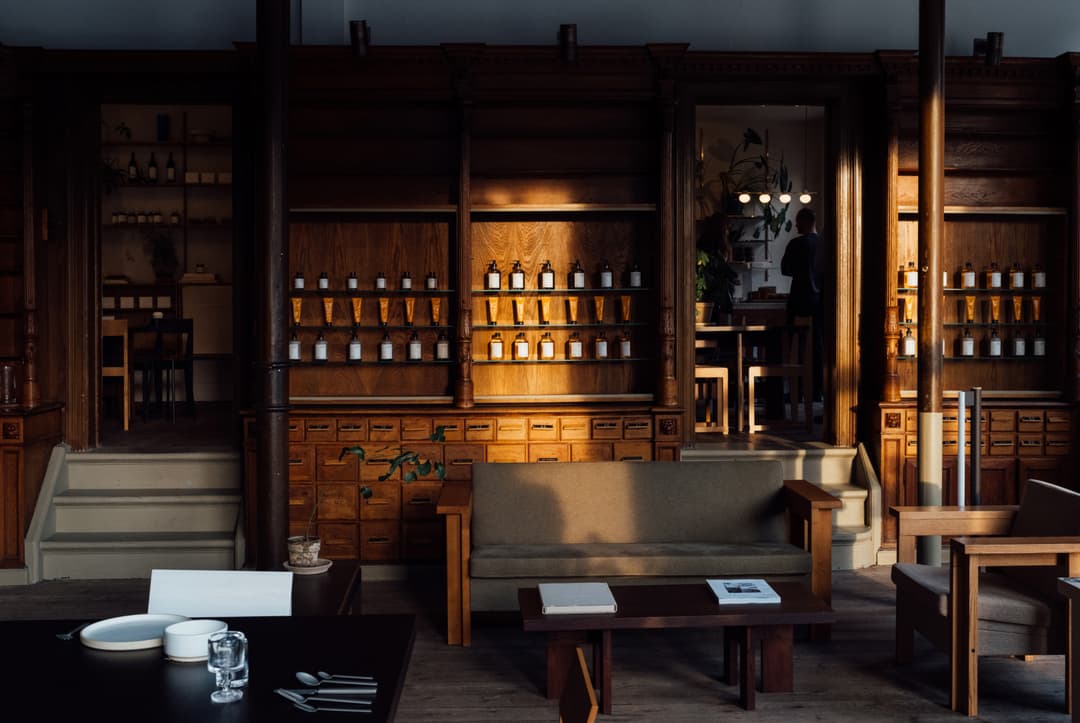
Play Movie
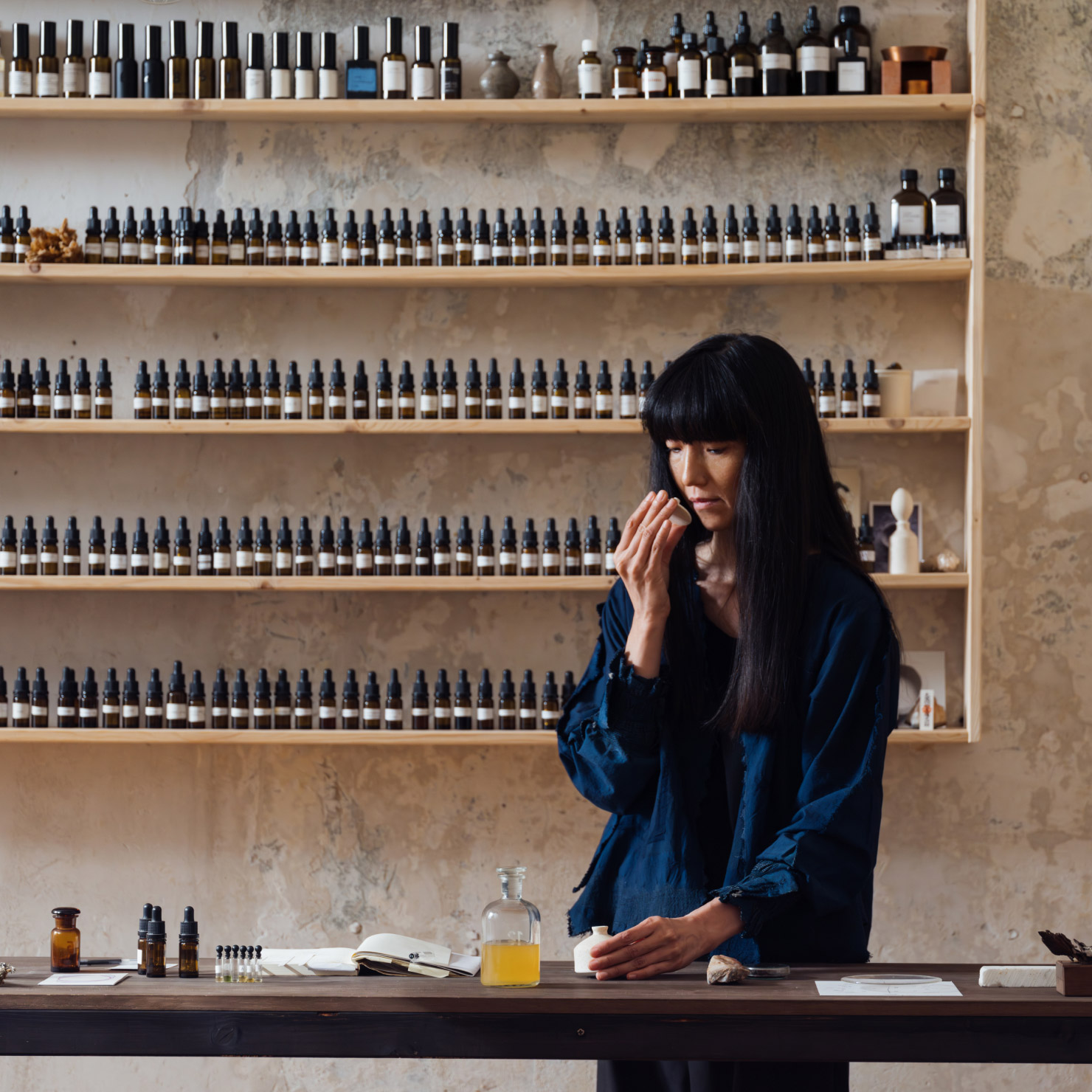
Listen
to Katherine Kennard
reading this story
THE SOUND OF A SCENT
RYOKO Senses Salon
Ryoko Hori and Daniel Kula share a lot more than a decade of firm friendship – they share a passion for nature and, in particular, natural perfume-making. Culturally and geographically, they grew up worlds apart, but their childhood fascinations with plants and rituals overlapped significantly. So, when a chance meeting in Berlin brought them together, it was only natural that they would establish their escapist sensory salon in the city, from where they handcraft pure botanical fragrances.
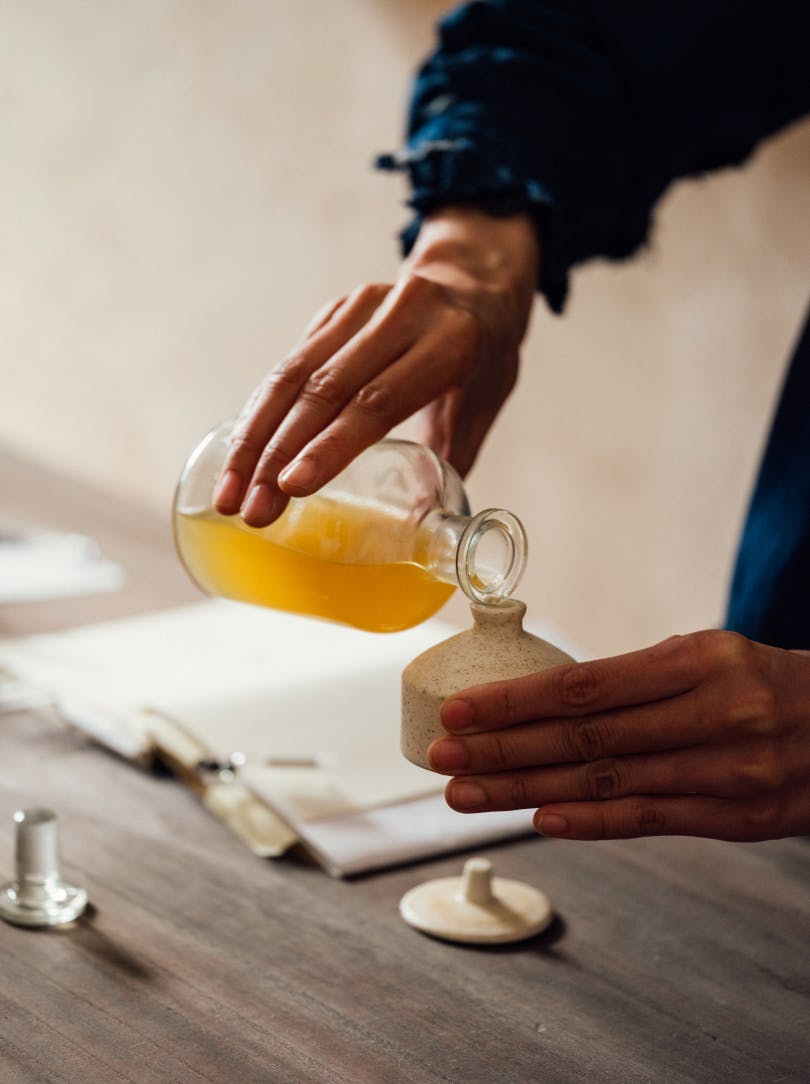
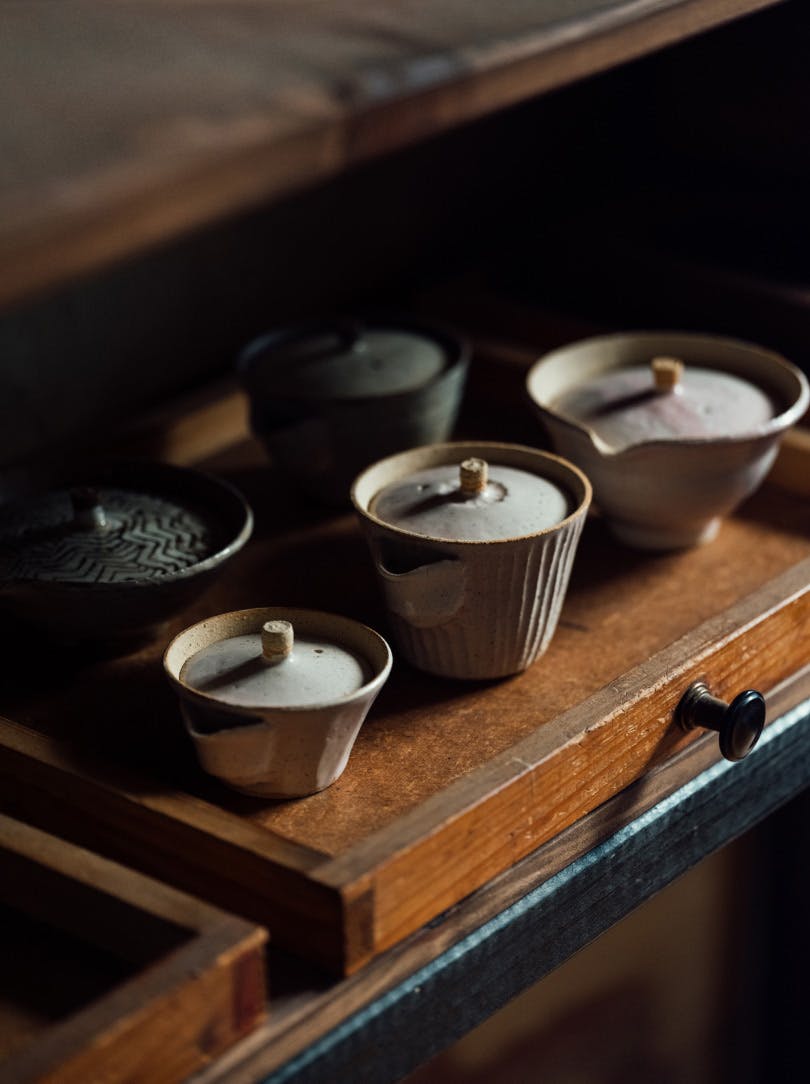
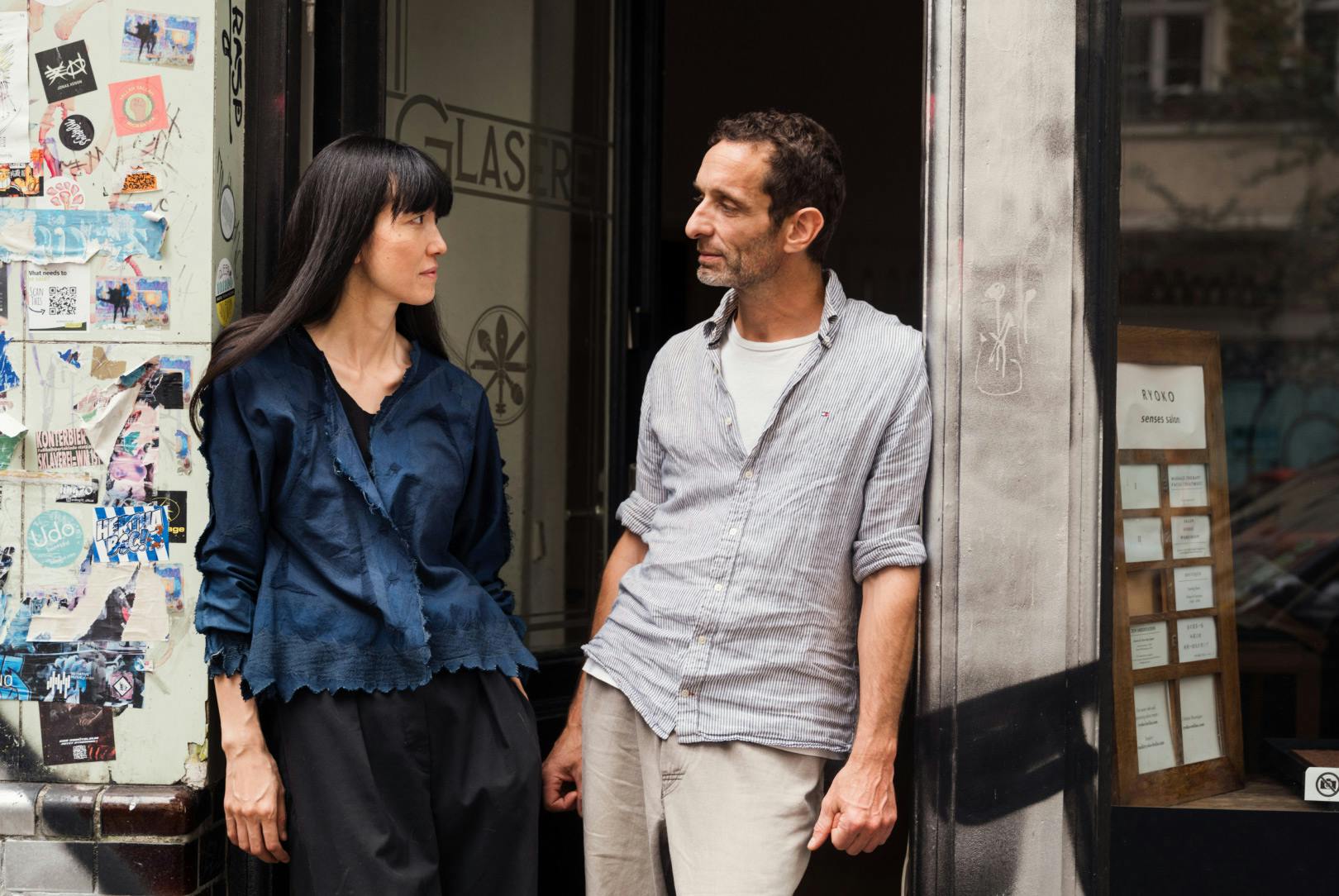
As soon as we step inside RYOKO Senses Salon, we pause – our eyes close, our shoulders drop. It’s almost like an automatic response, triggered by the scent; a scent that is at once sublime and subtle, calming yet invigorating, as well as warm and welcoming. Silence takes hold. A monastic-like atmosphere envelops us. An orchestra of delicate floral and herbaceous notes from far corners of the world instantly evoke a profound sense of tranquillity. It’s a stark contrast as we transition from the narrow, grey-cobbled footpath in one of Berlin-Neukölln’s typically gritty-but-cool graffiti-strewn side streets – with a cabaret theatre on the corner, a body piercing shop further along, a hip sneaker boutique opposite and a jungle-themed cocktail bar next door – into this little oasis of wellness.
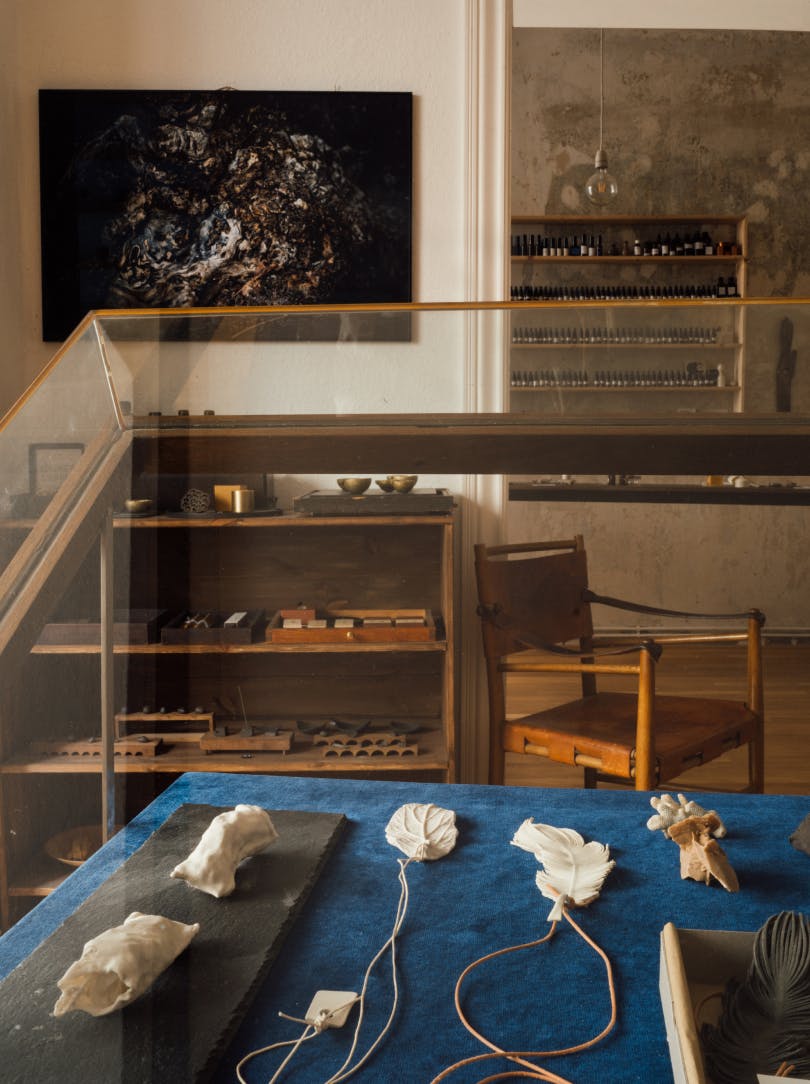
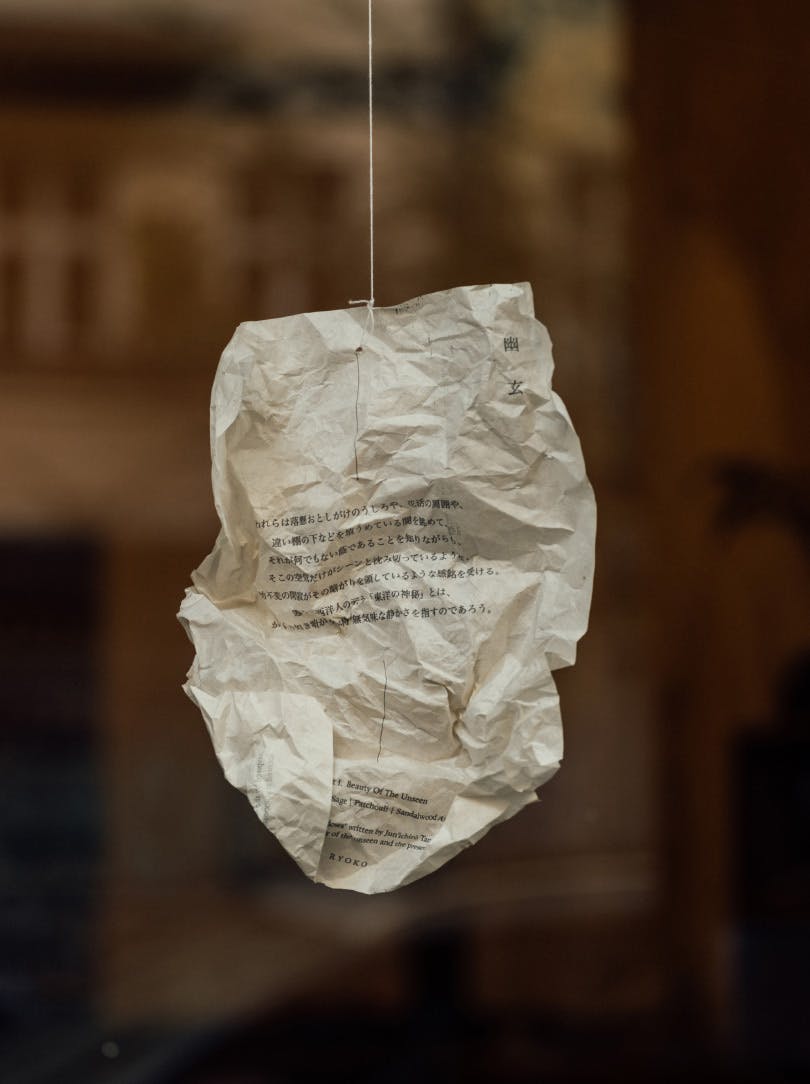
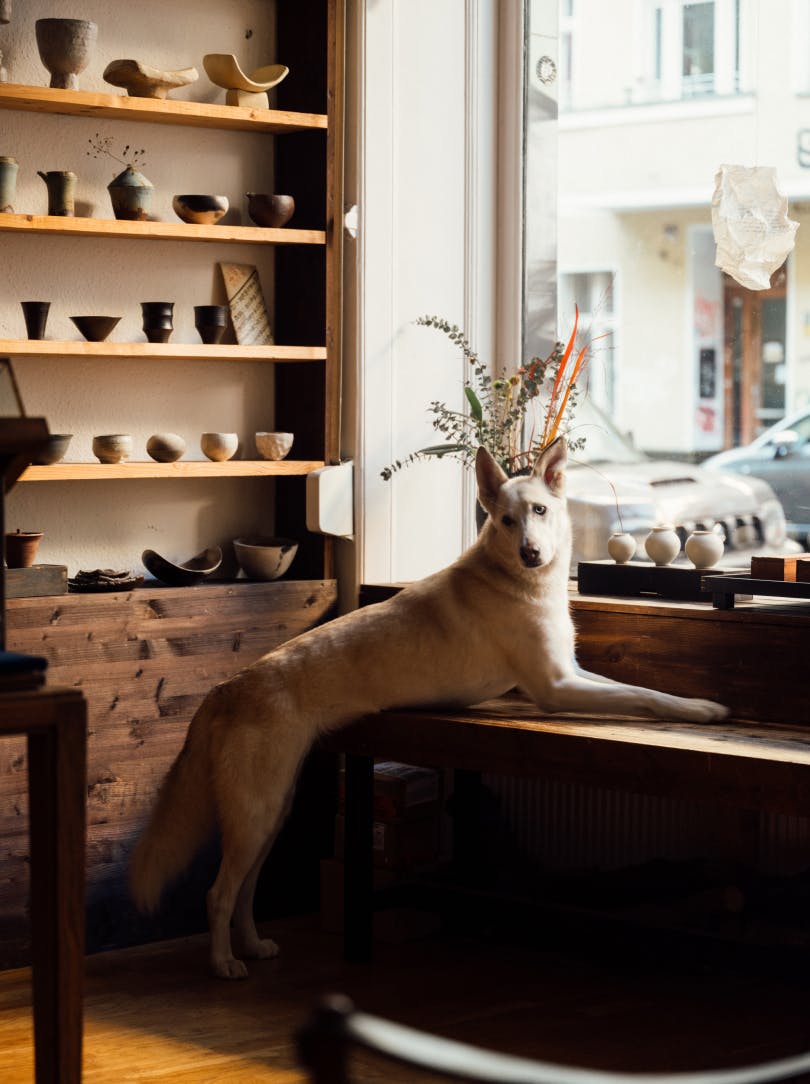
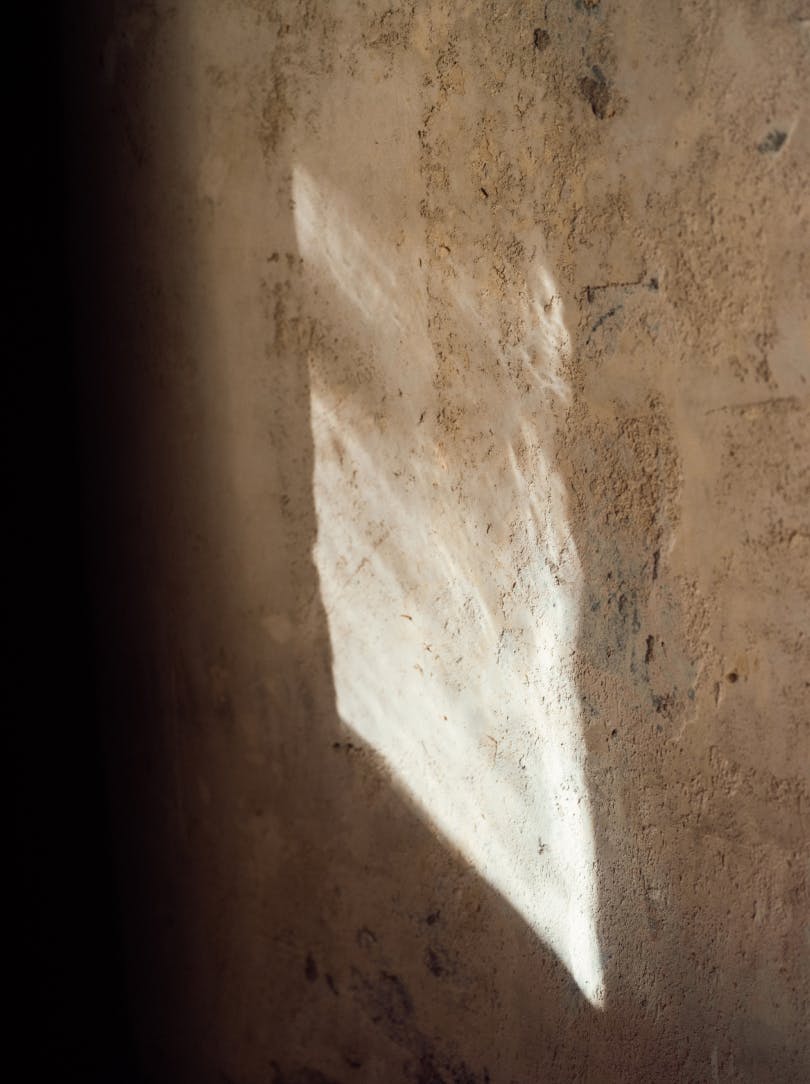
At first glance, the spacious two-room boutique has an old apothecary aesthetic, with wooden shelves lining the mottled concrete walls, dotted with dozens of carefully labelled amber-coloured ampoules. The first room, into which we step directly from the street, appears to be laid out quite minimally, but closer inspection reveals many beautiful, quiet curiosities that take some time to explore. Each beckons with its own fascinating story, such as the little hard blocks of black ink: pressed with a pattern or a face, they are perfectly alluring objets d’art as they are, but when we learn that they are made by a father and son in Japan using a rare, centuries-old technique passed down through generations of the same family, a whole new dimension opens up and draws us in. Other rarities include smooth, rectangular wooden boxes, made exclusively for the boutique using wood offcuts, containing natural oud or sandalwood incense – vastly different from the often headache-inducing synthetic variety you might find at a market stall – as well as small, white bulbous moon jars, made by a Berlin-based Korean artist, which were traditionally bigger and used for food storage but in this instance simply serve as objects to be admired.
Moving through a wide, open doorway into the second room, we discover an olfactory laboratory, with glass-topped cabinets containing specimens of resin, seeds and oud. Above a long timber workbench – atop which sits an open notebook and pen, various hourglass-shaped white ceramic bottles, a petri dish containing black stones and an assortment of glass phials and intriguing instruments – are five narrow shelves. Four of these are filled with a line-up of identical ampoules, and the closer we get the more fascinating they become. All bear meticulous labels, some handwritten, some created with a typewriter, and organised by the ingredient’s first letter: Maniguette, Manuka, Mehndi, Mandarin, Mate, Mango Leaf… This is where Ryoko Hori makes her delicate yet profound natural perfumes and skincare products. A magical aura seems to hang in the air, as if we’ve entered a rarified universe where time passes more slowly, as we are transported on a journey through old-world Japan. Seeking out all its treasures in just one visit begins to feel almost impossible.
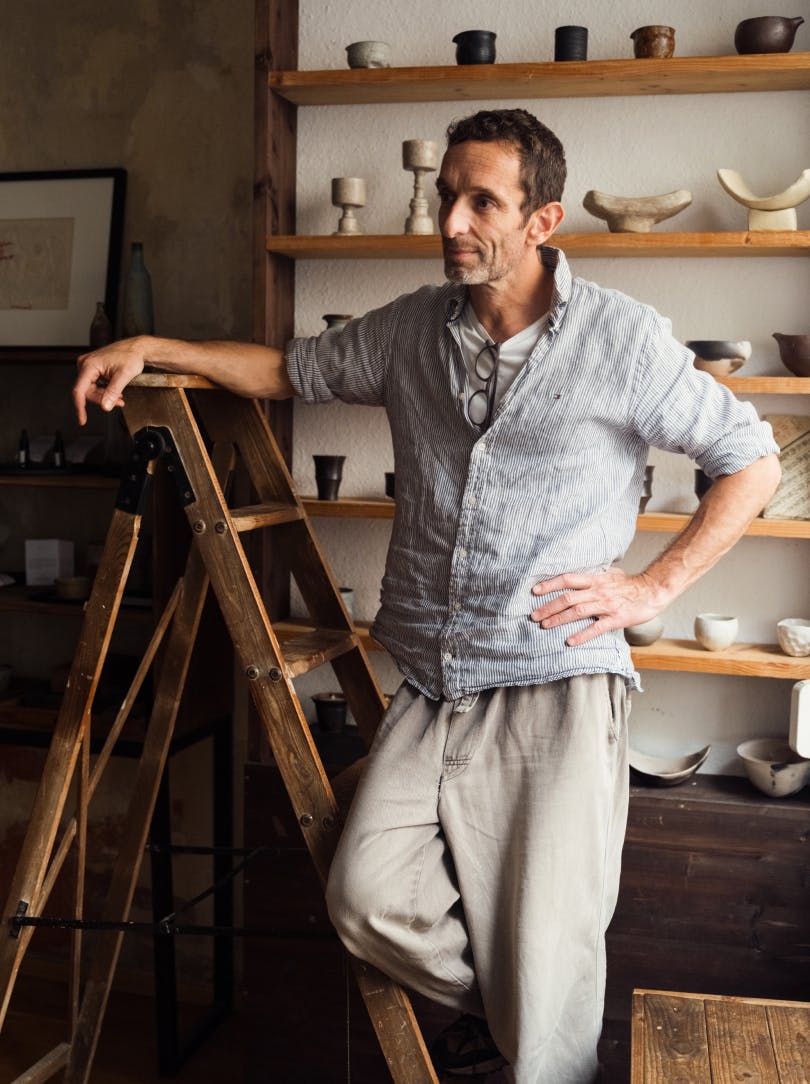
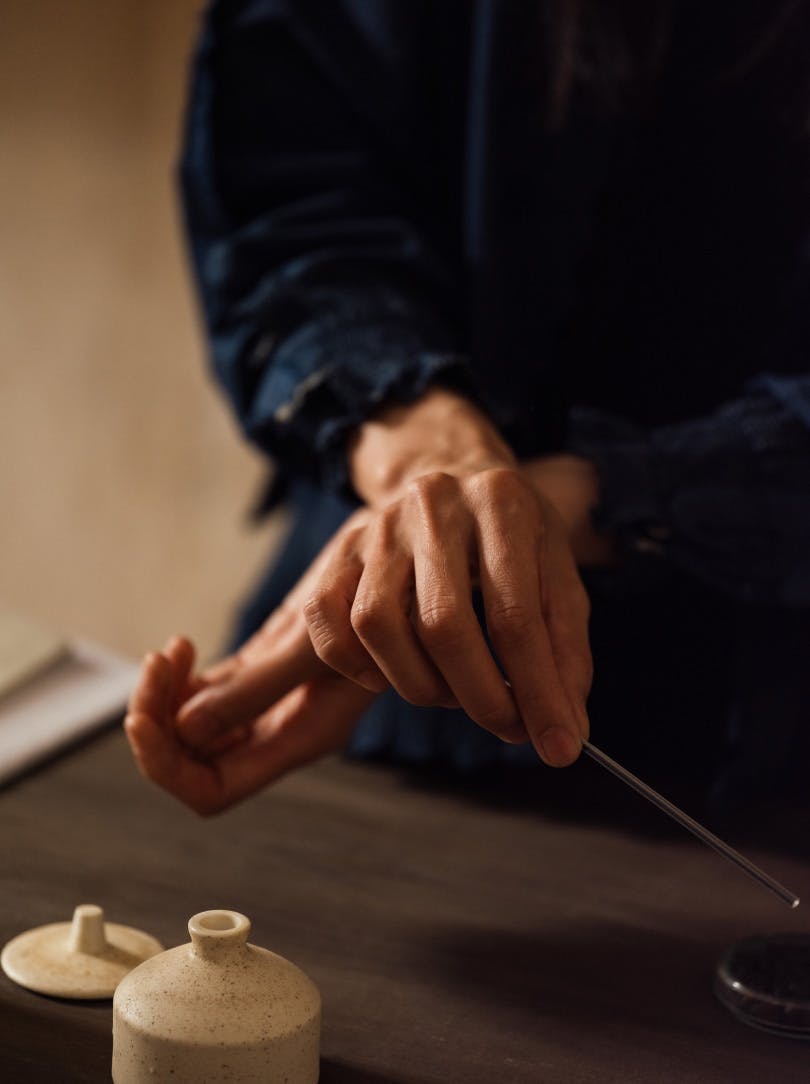
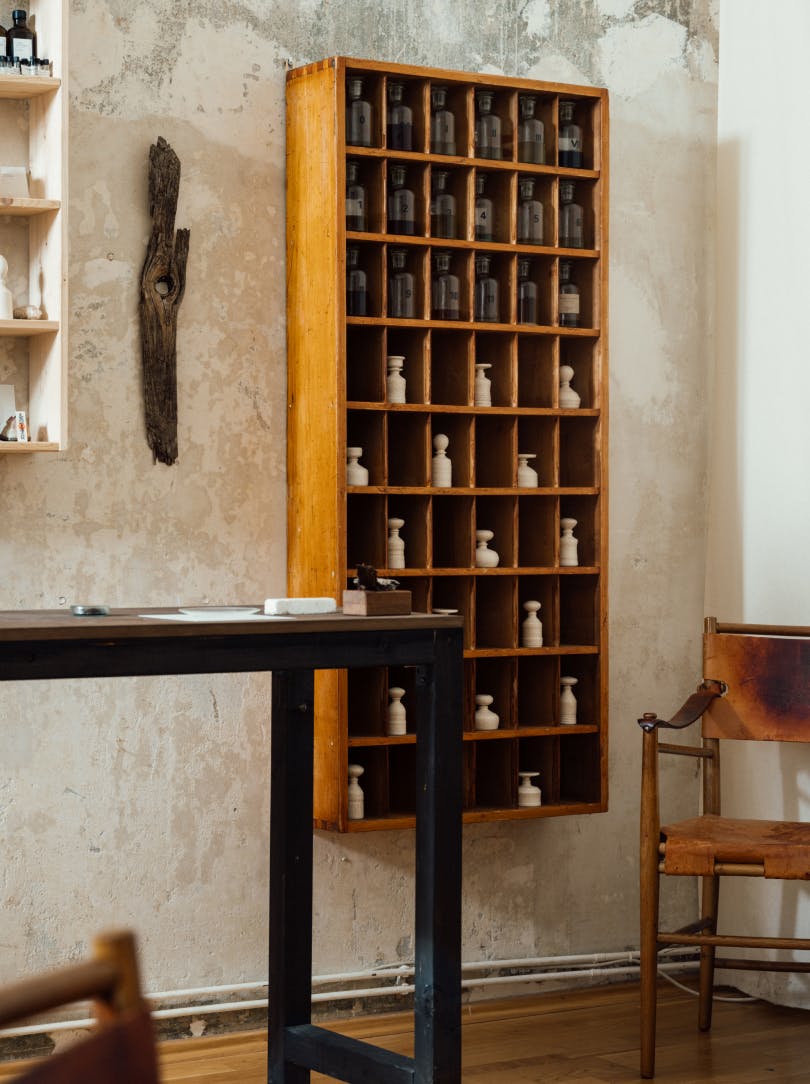
It is an unseasonably warm morning outside, as Daniel Kula, dressed in a light button-down blue-and-white-striped shirt over a white T-shirt paired with loose beige linen trousers and sneakers, breaks the silence inside with an affable greeting, outstretched hand and the offer of coffee. He has closely cropped light brown hair with just a hint of a curl and a sprinkling of stubble on his kind face. His easy way with words would make anyone feel at ease. Ryoko gently puts down a flacon containing a botanical concoction, smiles warmly, eyes peeping from beneath a heavy dark fringe, and glides over in her ethereal manner – long straight locks and loose elegant garments, black trousers and a raw-hemmed indigo blouse, moving with her – to also introduce herself, and of course their beloved rescue dog, Lumi. Her name means ‘snow’ in Finnish and ‘light’ in Latin, Daniel explains, which befits her perfectly: a brilliant-white bundle of energy with astonishingly bright heterochromia eyes – one blue, one brown – she trots about the shop floor, sweetly sniffing, but not licking, newcomers. She is clearly devoted to her owners and they to her, as she alternates between sticking closely by their sides and protectively keeping guard by the front window, paws propped up on a wooden bench seat. She appears like part of a curated display, and passers-by on the street sporadically stop to photograph this majestic creature through the glass, to which she occasionally responds with a defensive bark.
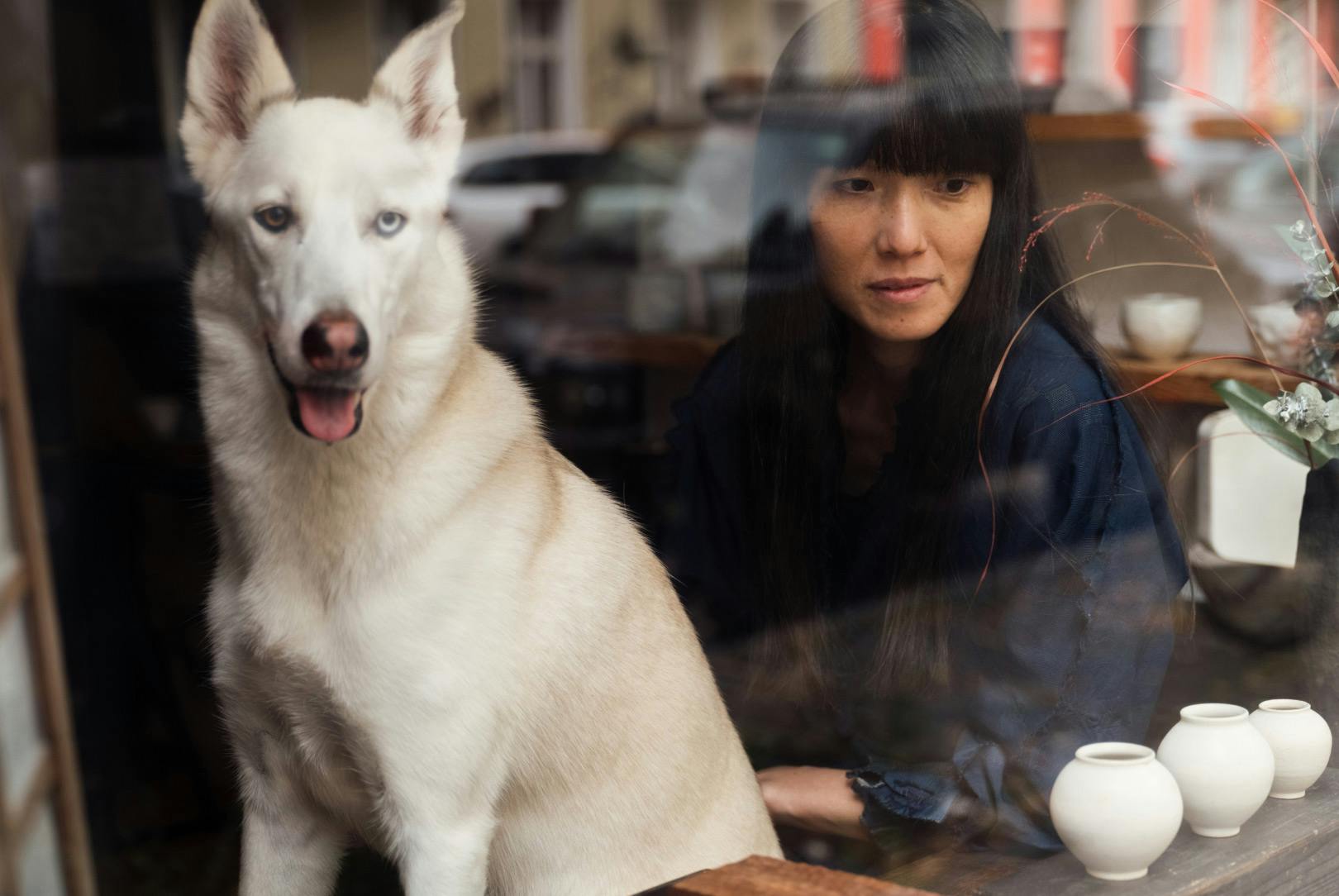
All three of them are unquestionably comfortable in their Zen-like environment, evident in their relaxed demeanour. Ryoko and Daniel created this space together in 2015. “We met in Berlin through friends more than a decade ago,” explains Daniel. “We were a romantic couple first, then later moved on to being best friends, which we still are.” Ryoko watches him as he talks, a slight smile settling across her lips. “We have been best friends for 11 years now,” she agrees. “We had a very strong instant connection, more than family.” This closeness is apparent in their frequent interactions – wordless glances full of meaning, reassuring touches, and pauses to really listen when the other speaks, indicating a deep-rooted mutual respect. Theirs is a familiarity that can only stem from true intimacy.
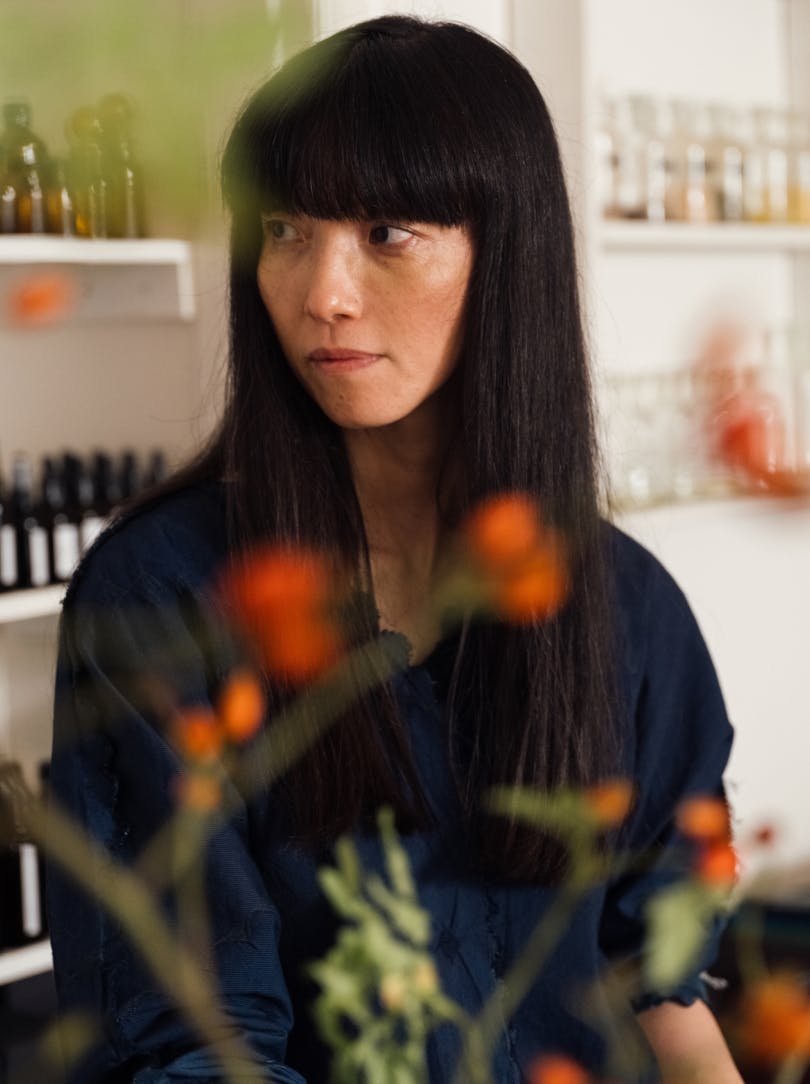
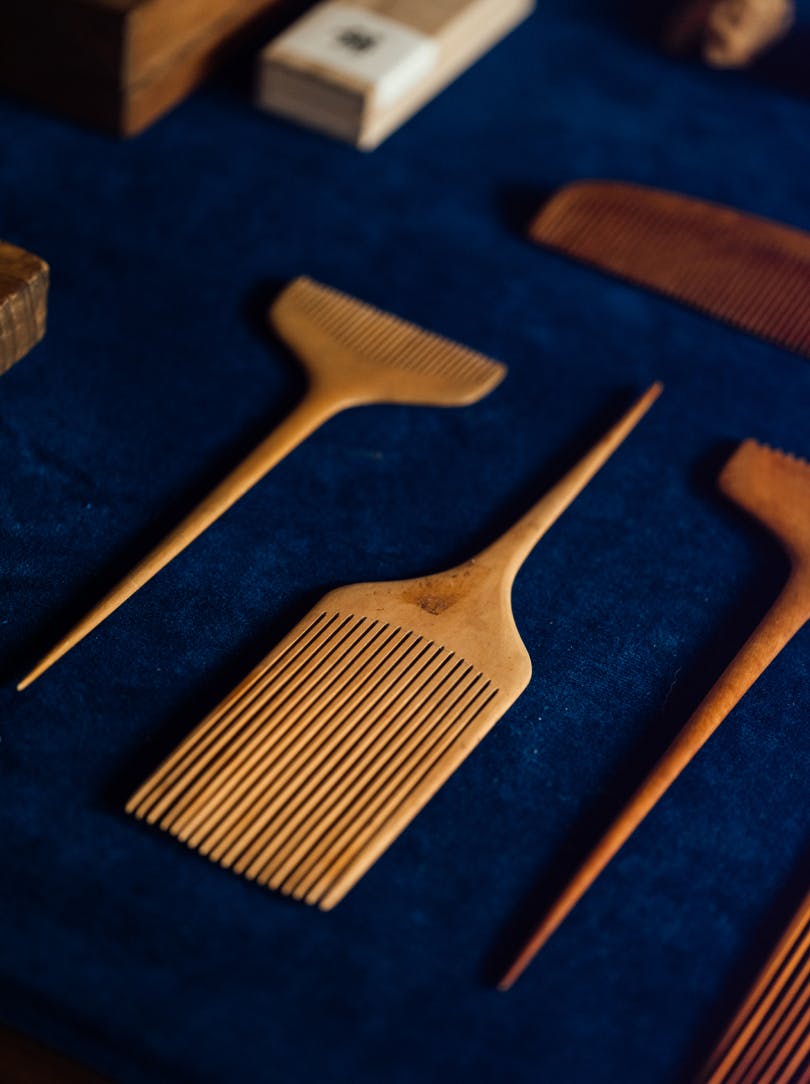
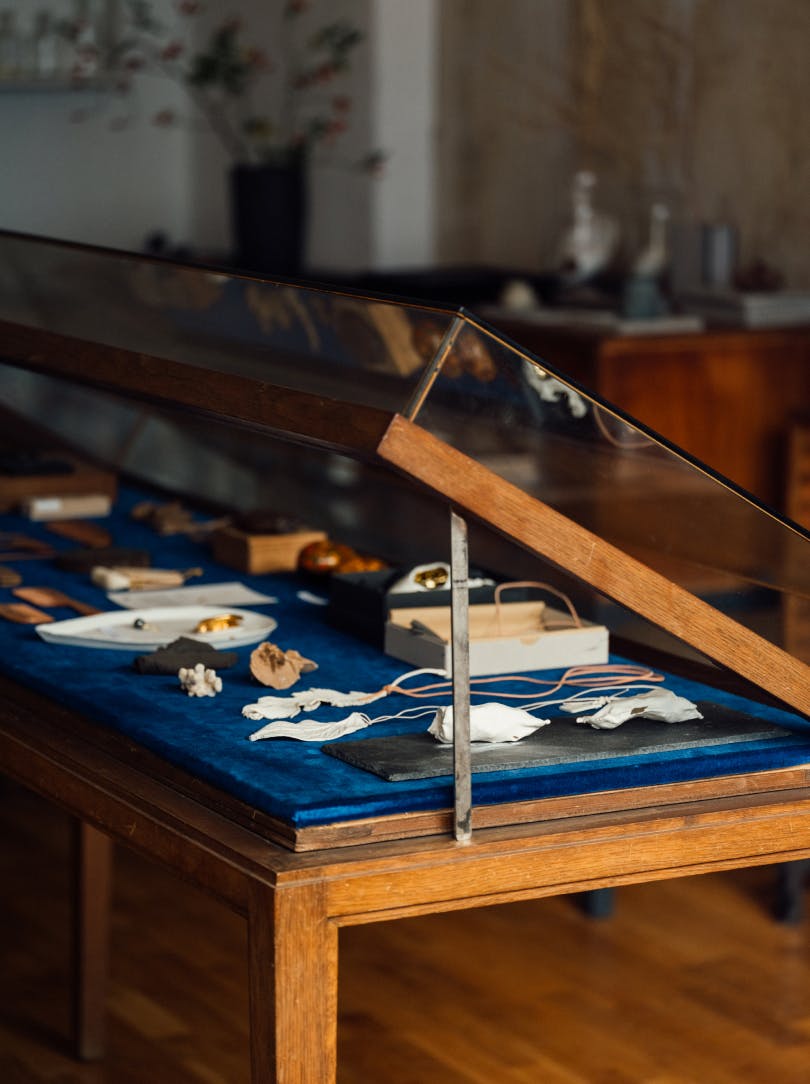
Daniel describes Ryoko as “very patient. She has much more patience than me. She’s also fine and elegant, as if she comes from a different epoch. Some people have this elegance from birth, it’s something that you can’t learn, and Ryoko is one of those people. From the way she’s dressing to the way she’s thinking and consuming, she’s very delicate.” Ryoko is just as admiringly descriptive of him: “Daniel is passionate and expressive, attracting people with his outgoing personality. The boutique is like his theatre – people often come here just to see him and hear his great stories about our products, artists, travels, discoveries. He’s a real raconteur, unlike me – this is something I had to learn to be here, but now I’m very comfortable with our community. Daniel also has a deep knowledge, and likes to really study and research a topic.” They are very different, she says, not as clear-cut as yin and yang, but complementary, in terms of personality and skills.
When Ryoko is speaking, Daniel sometimes interjects in French (their preferred mutual language, which she learned while living in Paris and he picked up easily due to the language’s similarity with his Romanian mother tongue) to help her clarify a point or encourage her to be less modest about her exceptional talents. Likewise, Ryoko turns to Daniel for support when she’s searching for the right word, for instance. And they complement each other seamlessly in their movements and actions when demonstrating an ancient tea ceremony and incense ritual, like a well-rehearsed piece of choreography. She speaks in hushed tones; he a little more emphatically. “We know each other very well,” confirms Daniel matter-of-factly, “and it helps that we’ve managed to transition from being a couple to being two founders of this business. We’ve learnt to deal with the good and the bad in each other. And have 100 per cent trust and faith in each other.”
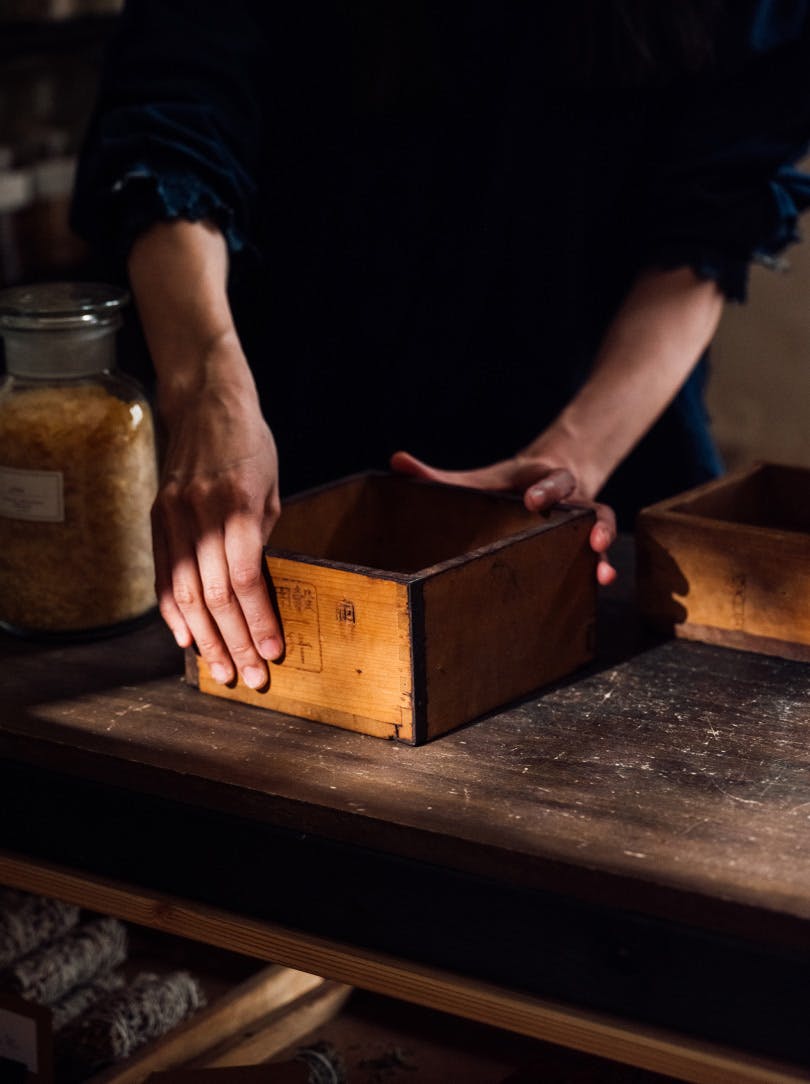
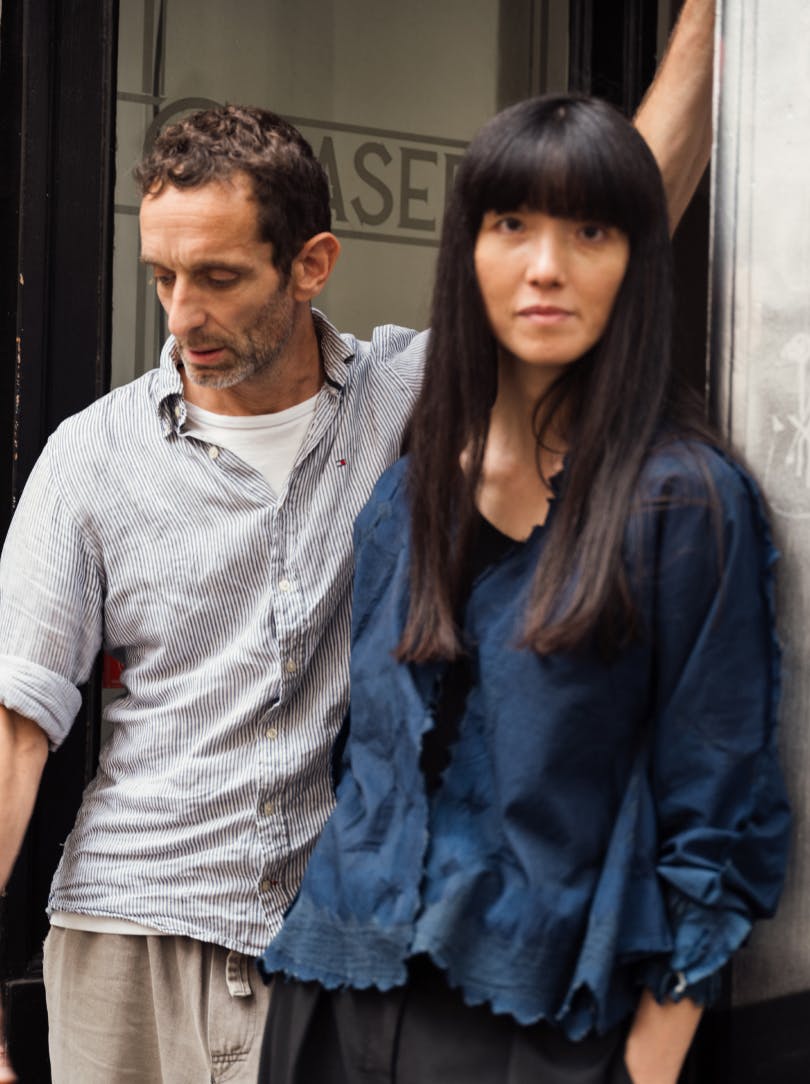
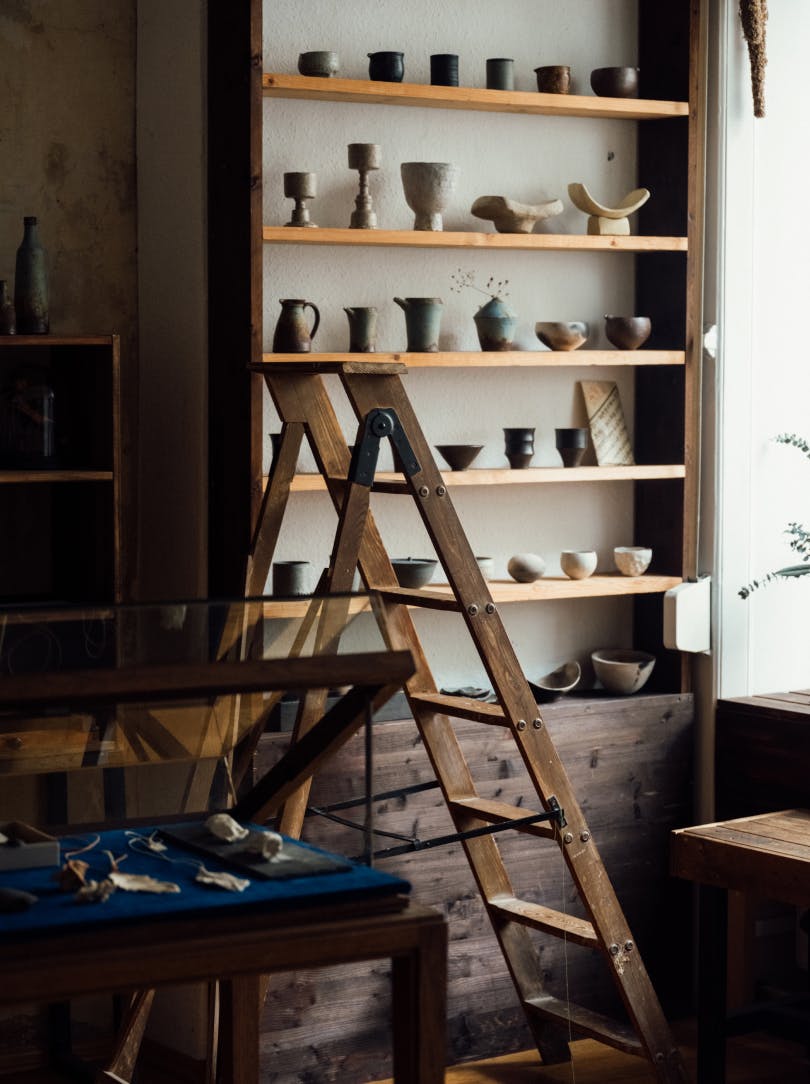
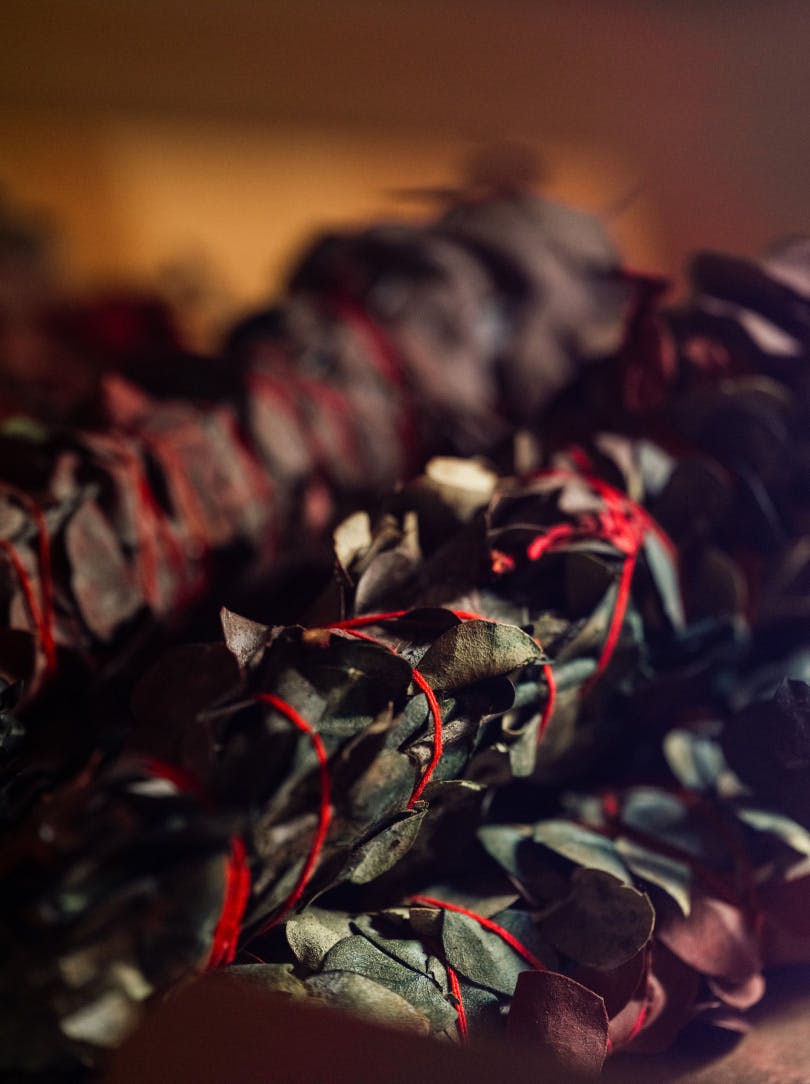
It was through their diverse cultural backgrounds that they discovered their shared passions for the natural world and scent. “I was born and raised in Osaka, Japan,” Ryoko says. “I had a strong relationship with my grandmother, who taught me all kinds of craft – sewing, knitting, making ceramics. My parents had a garden, so we had different vegetables and herbs. I was particularly fond of shiso, a Japanese herb in the mint family, with a unique scent. And I loved the cherry blossom, of course. In spring in Japan, I’d walk the streets full of happiness. There are so many different scents, season to season, because the landscape is so diverse.” About 10,000km away in Germany, Daniel was also developing an early fascination with plants and nature. “Growing up in Frankfurt, even though I’m a city child, my parents had a garden,” he says. “As a kid, I liked to observe and watch and play around with natural products. I had a strong interest in everything organic and natural. My parents encouraged me to help in the garden.”
“Creating a scent is like cooking, something highly intuitive. I see a beautiful ingredient. I want to taste it. I want to experiment.”
Ryoko Hori, co-founder & aroma therapist
One of Ryoko’s many accomplishments was learning how to make natural perfumes in the Loire Valley in France. “Creating a scent is like cooking, something very much intuitive,” she says. “I see a beautiful ingredient. I want to taste it. I want to experiment with it. I want to give it more value by mixing it with different ingredients. I enjoy mixing.” She sources essential oils from all over the world, explaining that each distillery has its own speciality, its own characteristic, and purchasing from those that adhere to ecological and ethical standards is particularly important to her. Ryoko and Daniel recently acquired their own distillery apparatus, known as a still, and have been delighting in experimenting with distilling various plants collected from their shared allotment garden or growing wild. As they are discovering, it’s not possible to extract essential oil from every plant and different plants require different methods, such as enfleurage, a process that requires odourless fats to capture fragrant compounds, or CO2 extraction, which uses pressurised carbon dioxide to pull out the aromatic molecules. For now, it’s still a case of trial and error.
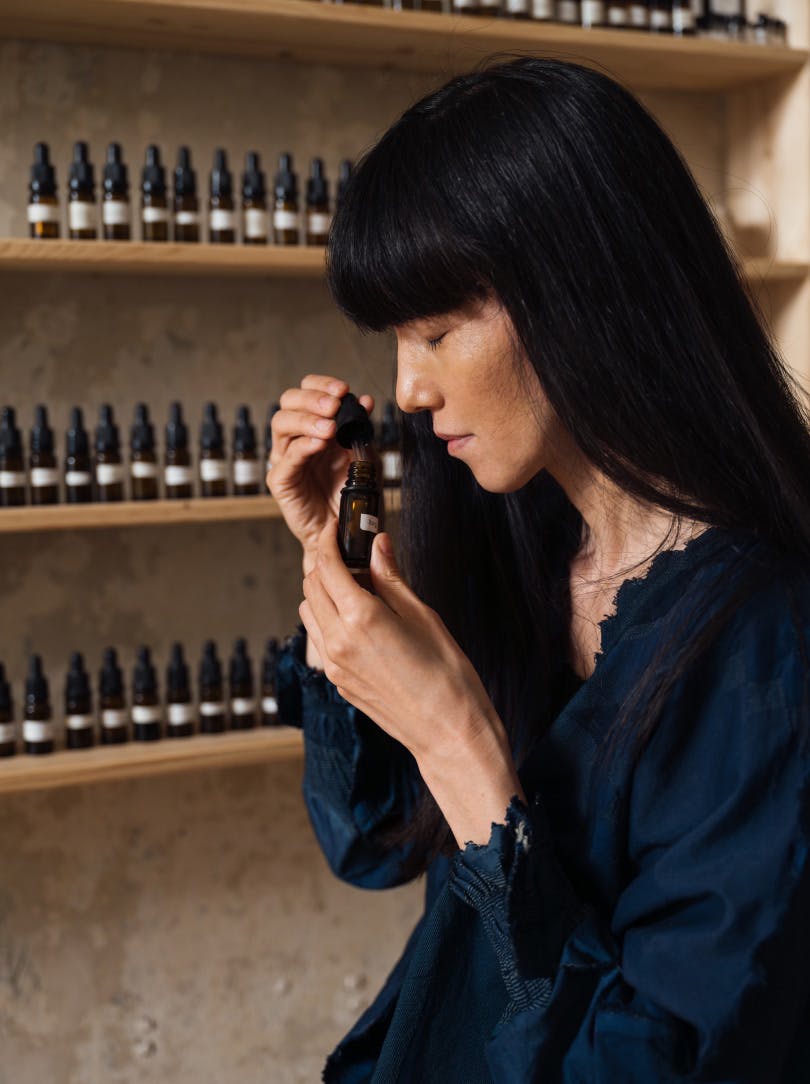
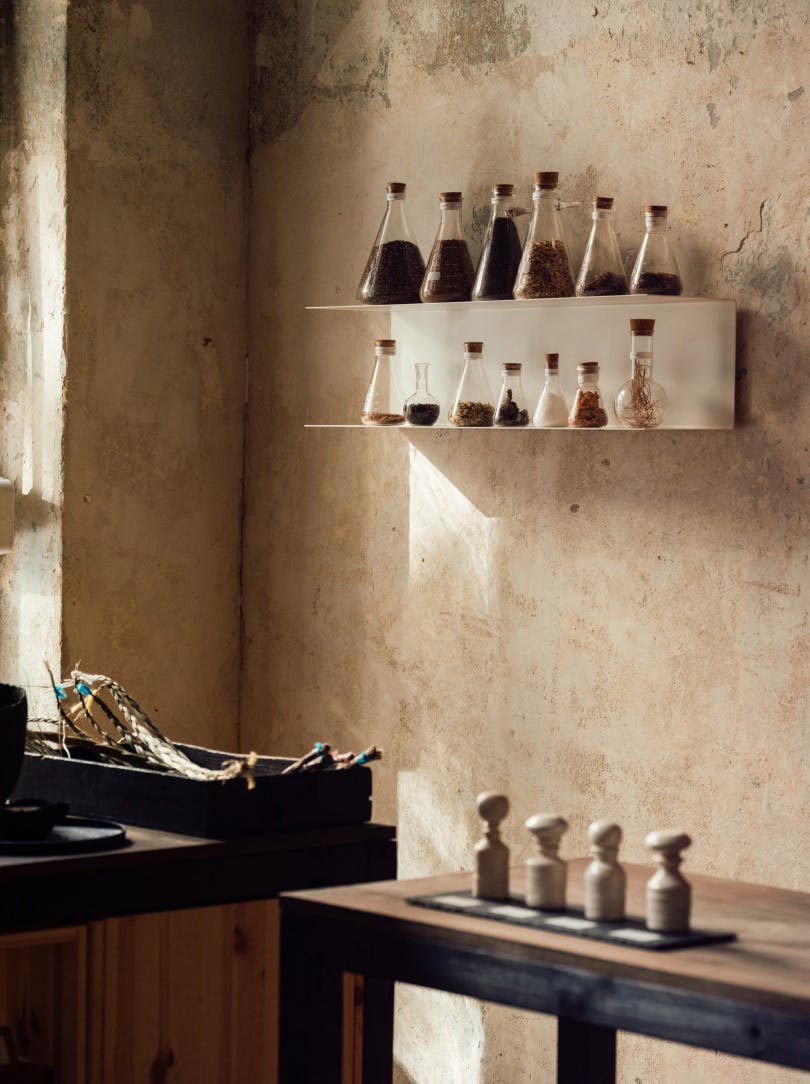
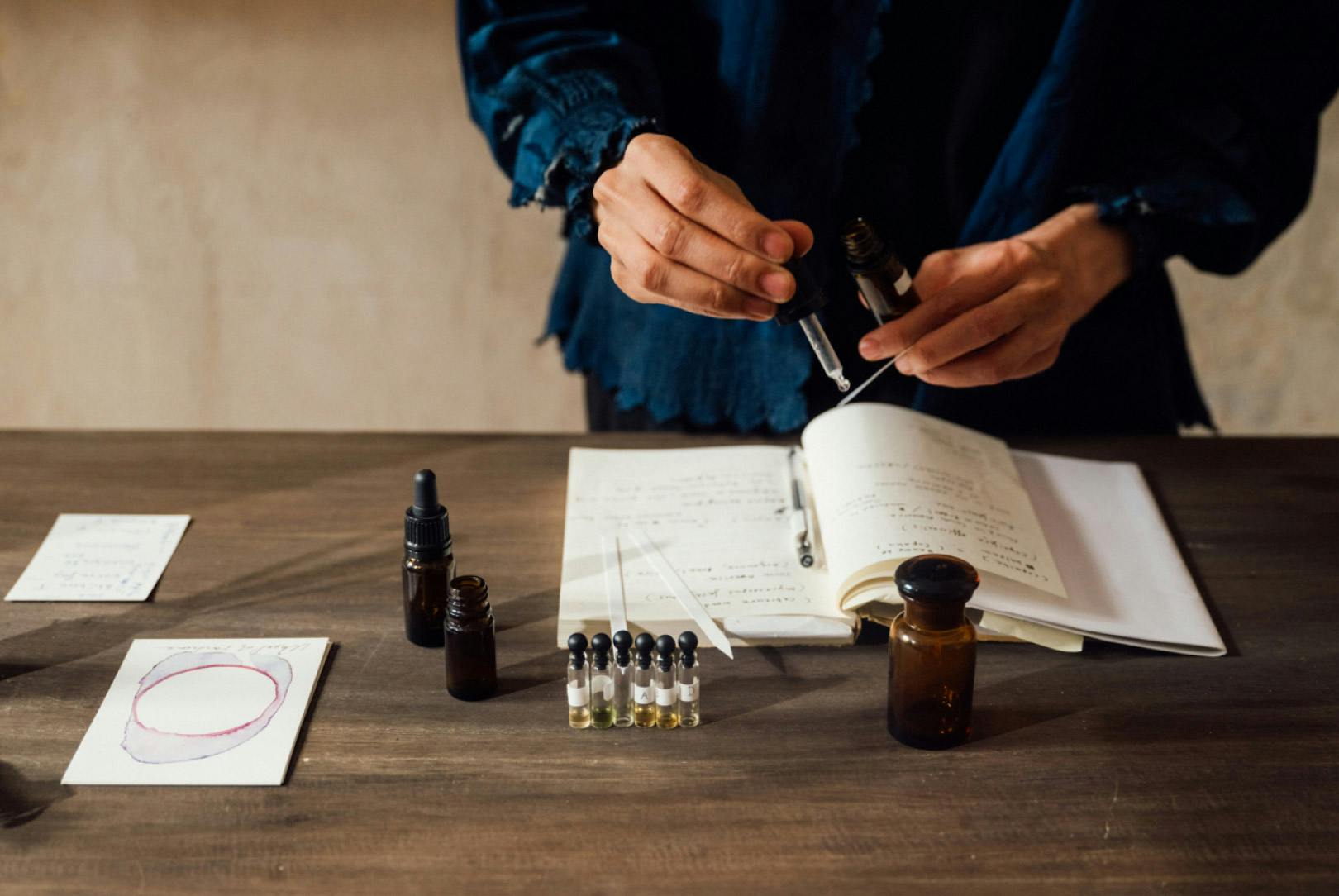
“I try to smell and to understand the tone and colour, and also the voice within a scent,” Ryoko says. “I close my eyes to understand more. Visuals are so dominating.” The art of listening to a scent, instead of smelling, is a Japanese tradition involving the whole body. “For me, this is an act of respect, of being open, of listening, of understanding. It’s how nature speaks to you.” The perfume-making journey can be a long and complex one, but as a true alchemist, Ryoko has infinite curiosity and patience for it. “I start by researching a plant’s history: I’m curious to know about different plants, how they have a story behind them, how people used to use them. When it comes to my laboratory, I want to live a scent, by which I mean to really experience one ingredient, for one day – or for a longer time – to understand it more. The next day, I will smell it again in my different condition. And in a week, again, I will smell it – because our body’s system changes over time, and I have different perceptions on different days.” There are often up to 20 botanical essences in one perfume and completing it can take up to a year from start to finish. There are no shortcuts, Ryoko continues: “If I don’t like it, I need to leave it. I have to start again”. As Ryoko crafts a scent, her notebook and pen are essential tools for noting down her findings in neat black handwriting – or even shapes. We observe her drawing what looks like a triangle, but is actually a fragrance pyramid, she explains, to map out the perfume’s top, middle and base notes.
“Natural ingredients have a living soul. We believe that nature has the ability to heal, to help us digest, to nourish us and inspire us.”
Ryoko Hori, co-founder & aroma therapist
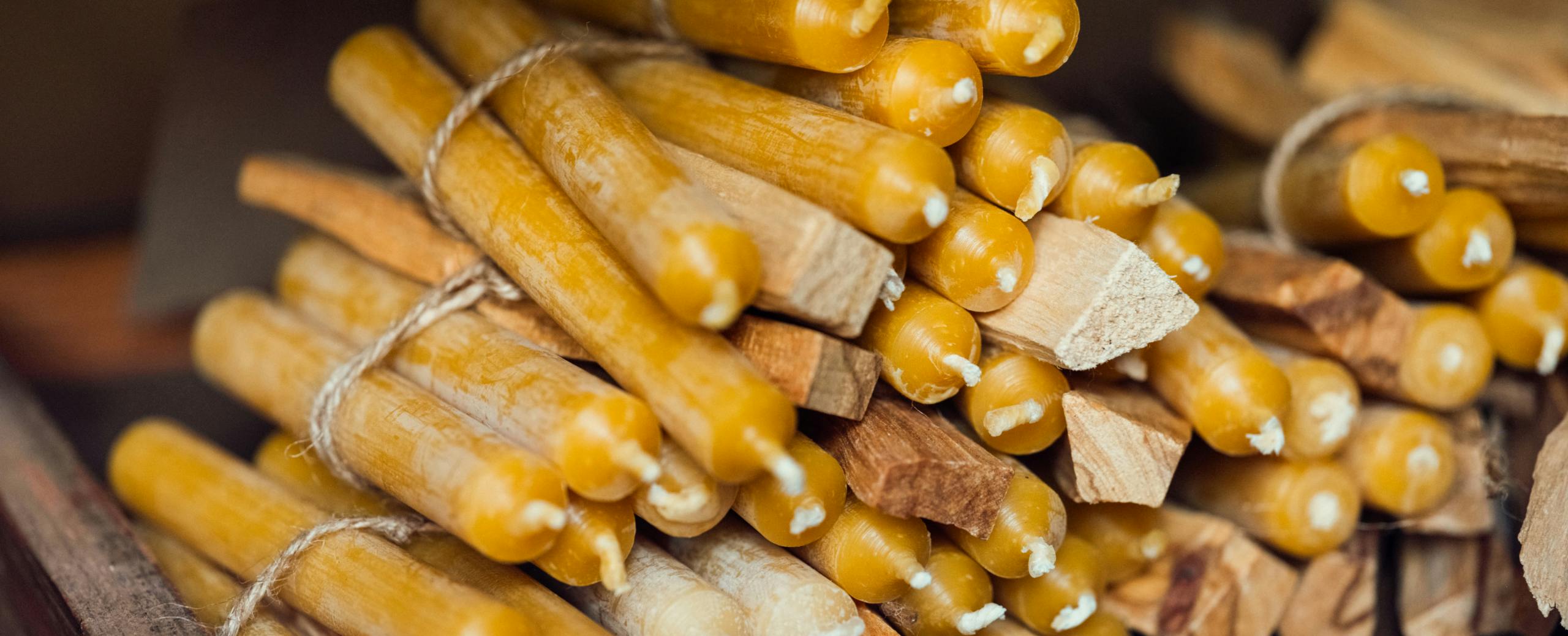
Perfume-making is a collaborative effort here, and Ryoko always asks Daniel for his trusted opinion throughout the process, as they develop and shape it together. Many people they meet, Daniel explains, have never experienced natural perfume and are so accustomed to synthetic foods and aromas that they don’t know how something pure should taste or smell any more. “They are all amazed,” he says of their scents. “Sometimes they long for a stronger smell, because they don’t know that natural scents are more subtle than synthetic ones, or that they’re dynamic and changeable – they can smell completely different depending on your body temperature, hormonal status and your own scent. But once they understand, then they keep coming back to the natural product.” Nature, as Ryoko enthuses, provides a full spectrum of ingredients: “There’s no limitation, because nature is wide. At the same time, nothing is permanent and we respect that. Natural ingredients have a living soul. We believe that nature has the ability to heal, to help us digest, to nourish us and inspire us.”
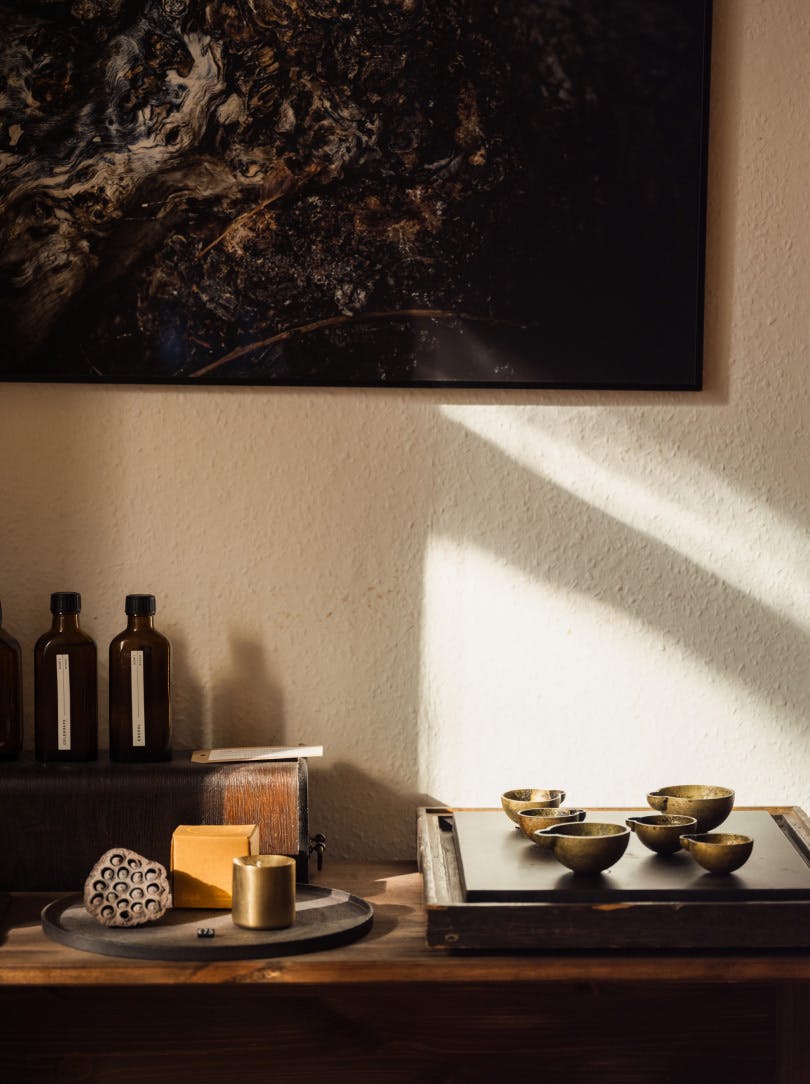
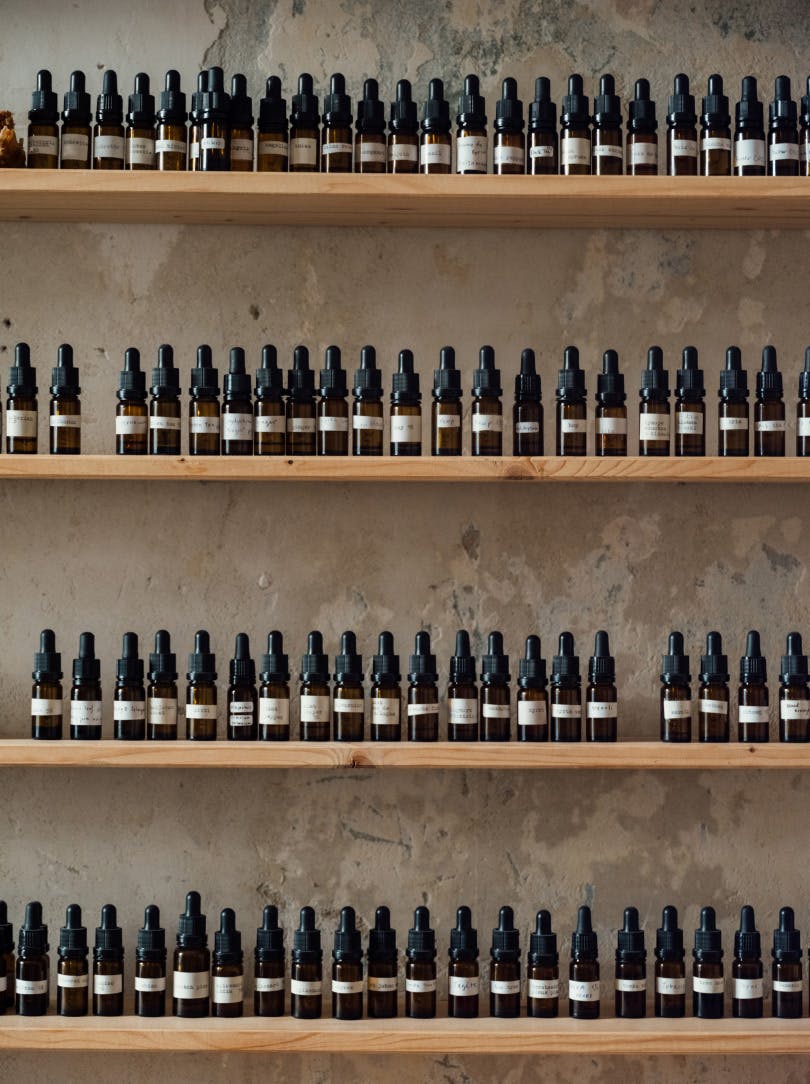
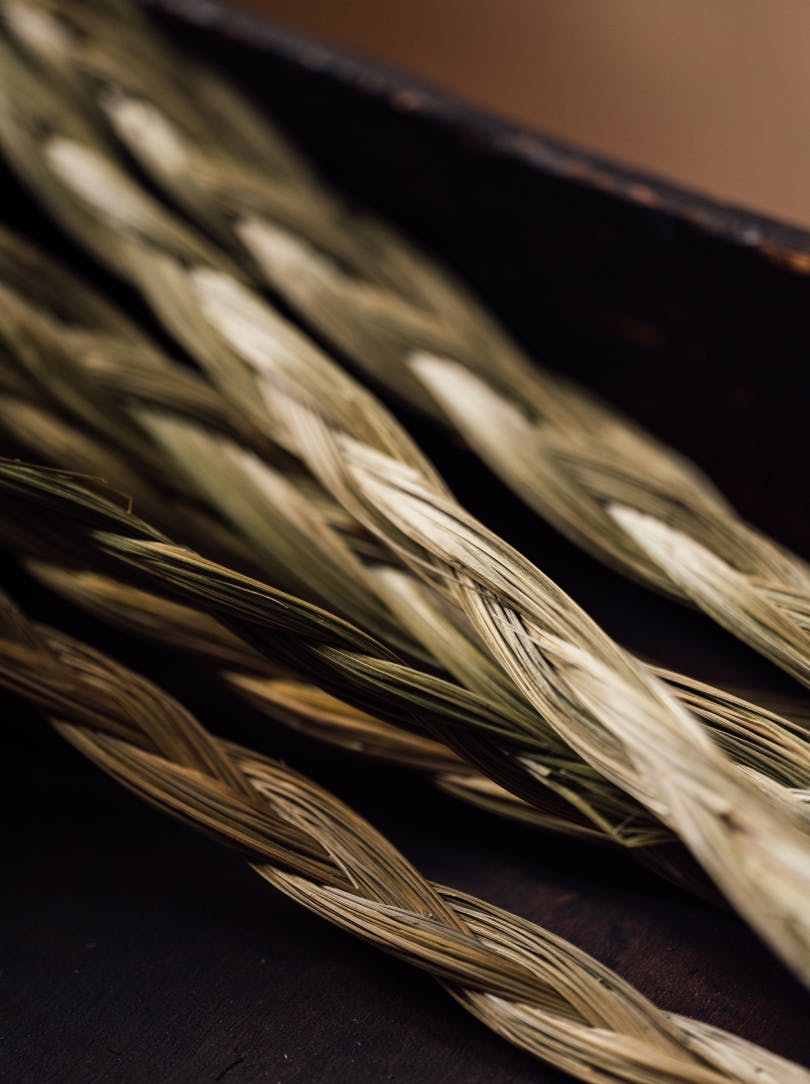
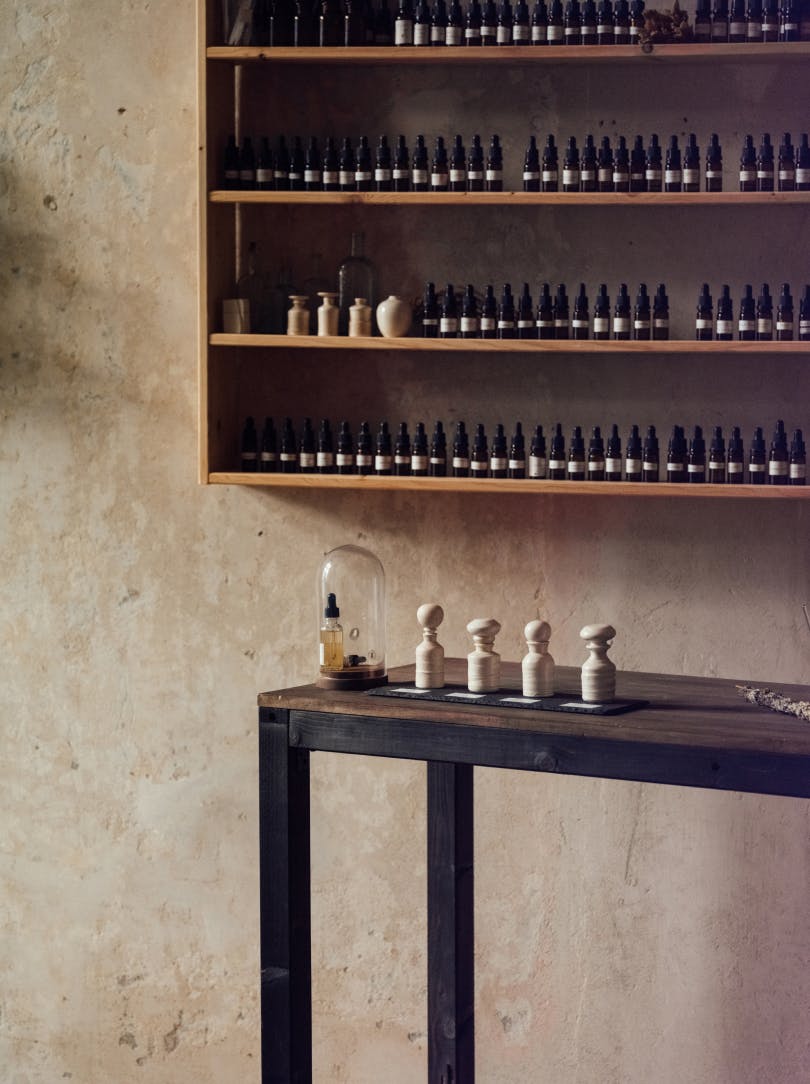
Simply being immersed in these gentle, neutral-hued surroundings, listening to the wisdom that Ryoko and Daniel expound, instils such clarity of mind along with a stirring sense that a seed of change has been planted – one that pledges to pay closer attention to the natural world and the myriad ways it can benefit us on a deeply personal level. Choosing a natural fragrance made by Ryoko seems like a good place to start.
Finding out which fragrance notes are right for you is not a purely cerebral process. “We encourage people to feel and experience scent with their body, which leads to all sorts of different results,” says Ryoko. Daniel agrees that you shouldn’t “start thinking too much. Just go unfiltered with the emotion – smell and then feel. Be aware of that feeling and go with it.” Perhaps sensing the question marks lingering behind our eyes, Daniel continues to explain that people often have a preconceived idea about a particular scent, which hinders their experience. Take patchouli, for example, which was the signature scent of the hippy generation as well as being commonly used by sex workers. “You could decide, ‘That’s not for me,’ before even trying it, without allowing yourself to be open to how it makes you feel,” he says. That’s why they stopped displaying a detailed description of each perfume, in order to allow customers to go straight to picking it up, applying it to their skin, and smelling it first, rather than reading about it and starting a thought process.
“I love that we travel the world, in a sense, while standing still. We have built a very like-minded community this way.”
Daniel Kula, co-founder
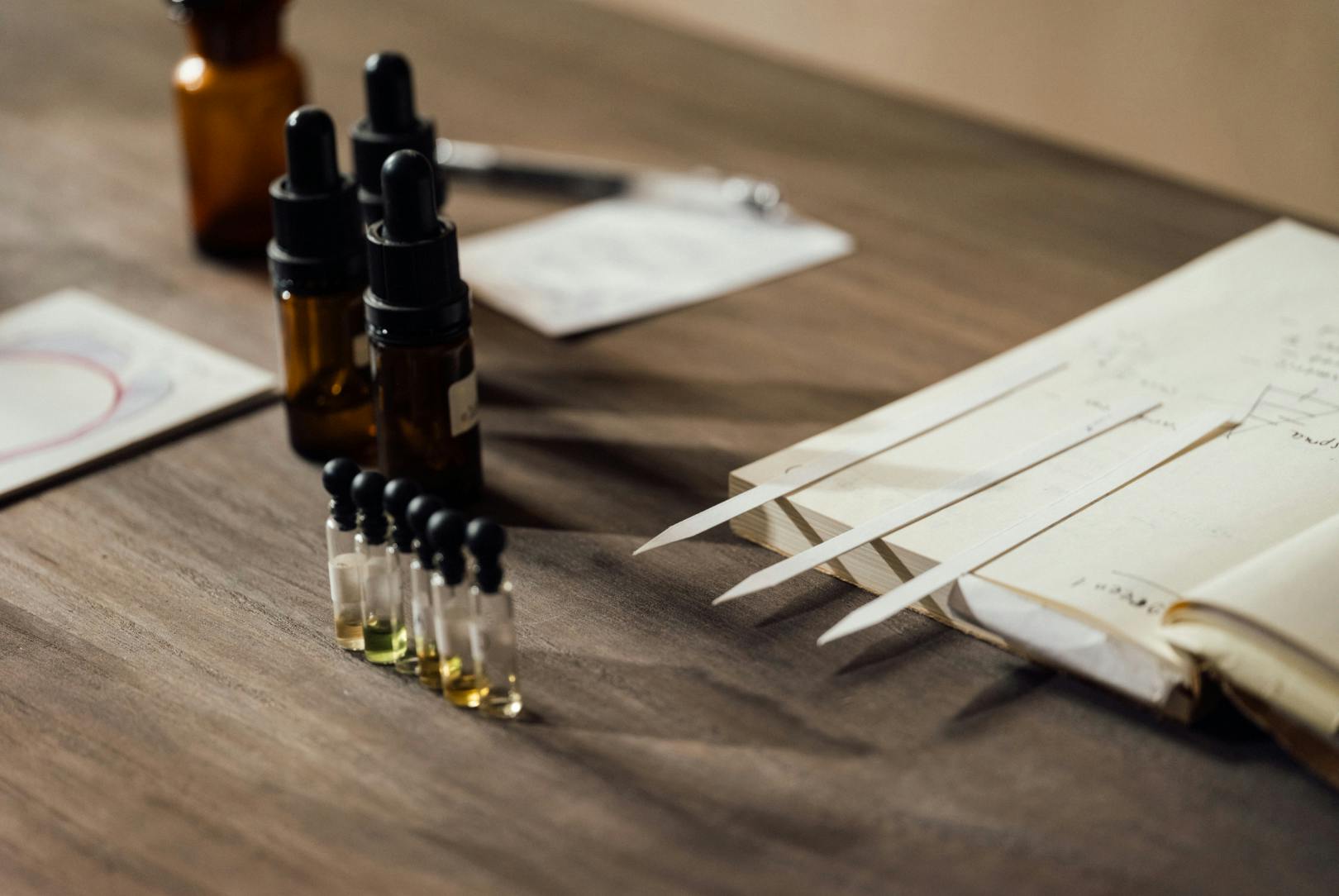
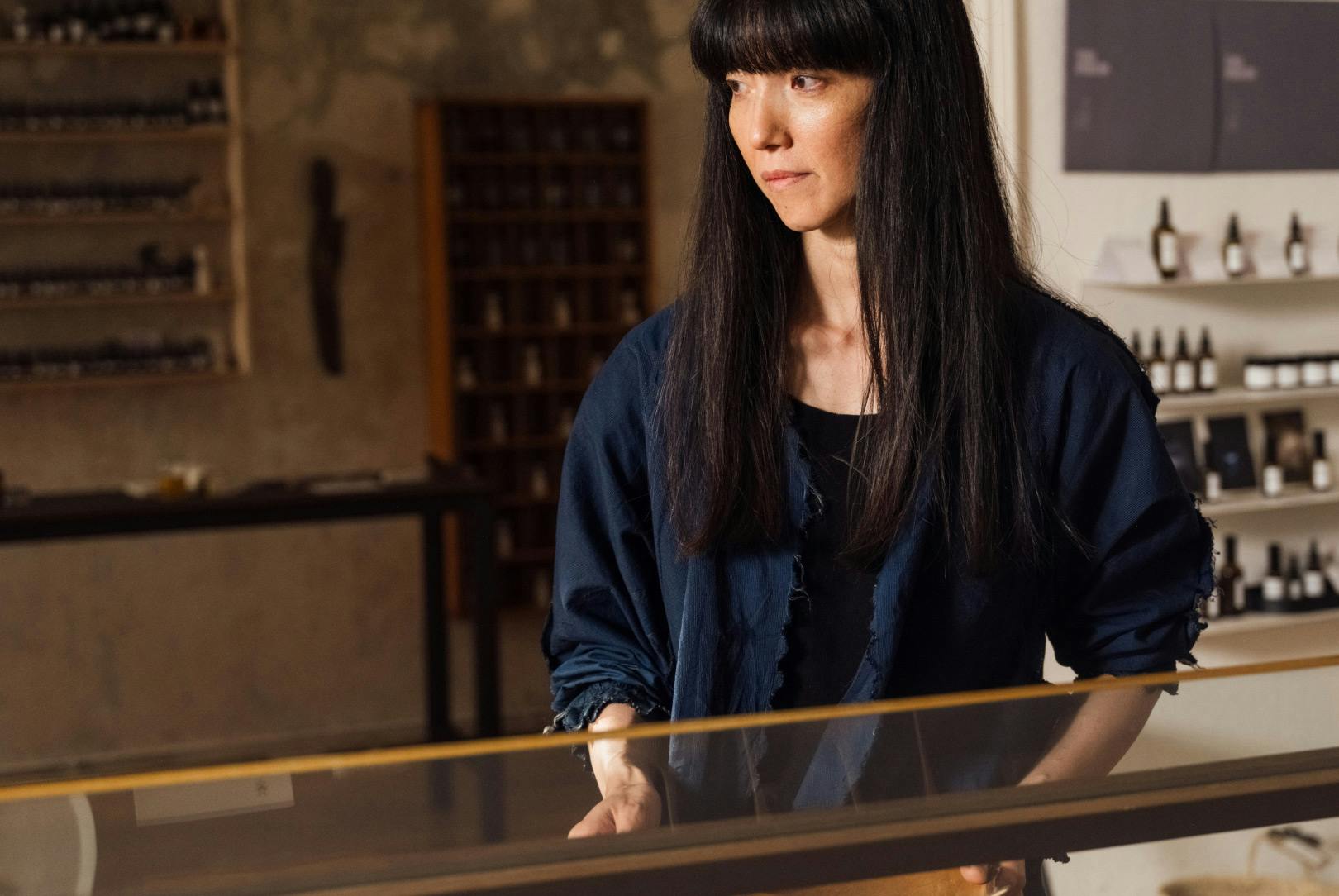
Scientifically, there are solid reasons as to why scent can be so triggering. “Once you smell a scent,” Ryoko explains, “the scent molecule goes up to the part of the brain responsible for emotions and memories” – eliciting the ultimate personal response. Even applying essential oils onto the skin, without smelling, can evoke a physical response, such as calming inflammation or irritation and providing nourishment for dryness. “The essential oil goes into the vessels and throughout the entire body,” she continues, “so even though you’re not smelling it, it has an impact on your system. It’s like a plant medicine.” Aromatherapy – another of Ryoko’s specialisms – offers medicinal benefits, too. Lavender, for example, has a proven soothing, sedative effect, Daniel tells us, and the smoke from burning sage has antimicrobial properties that can massively reduce airborne bacteria. “This wisdom has been there for so long. We want to bring it back to people, especially in cities, so that they can benefit from the healing power of plants. We do find that people from all over the world come to visit us here on the two days a week – Fridays and Saturdays – that our boutique is open. I love that we travel the world, in a sense, while standing still. We have built a very like-minded community this way.”
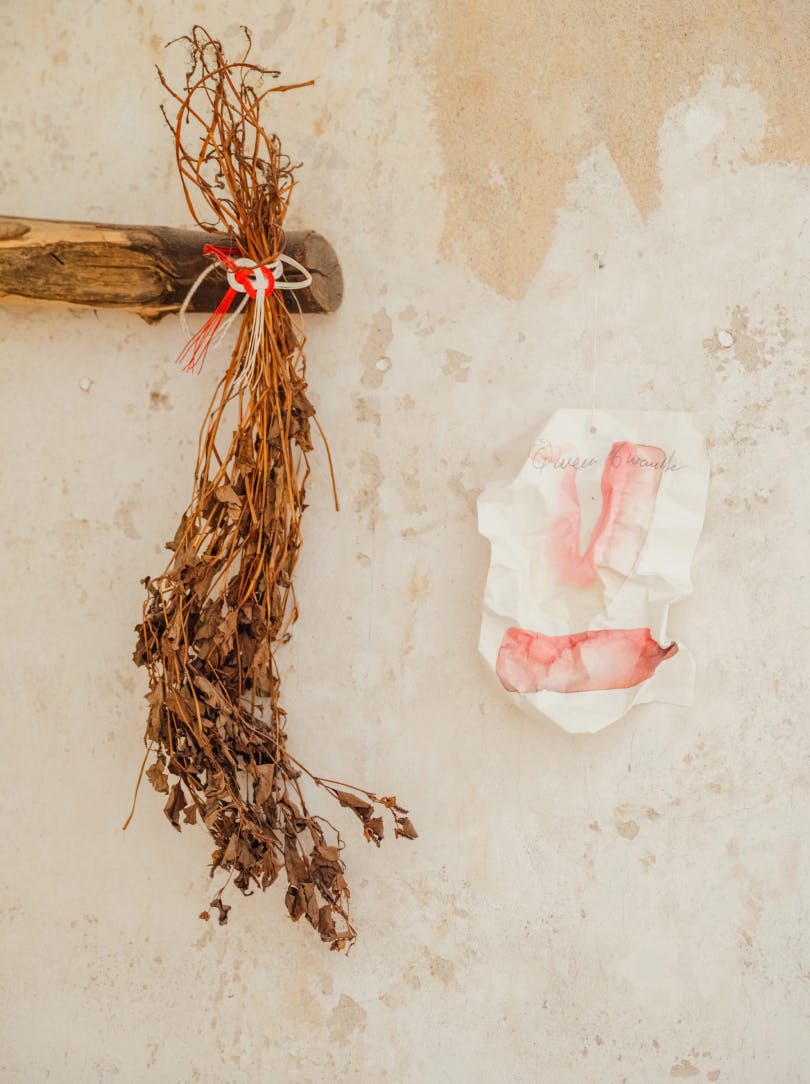
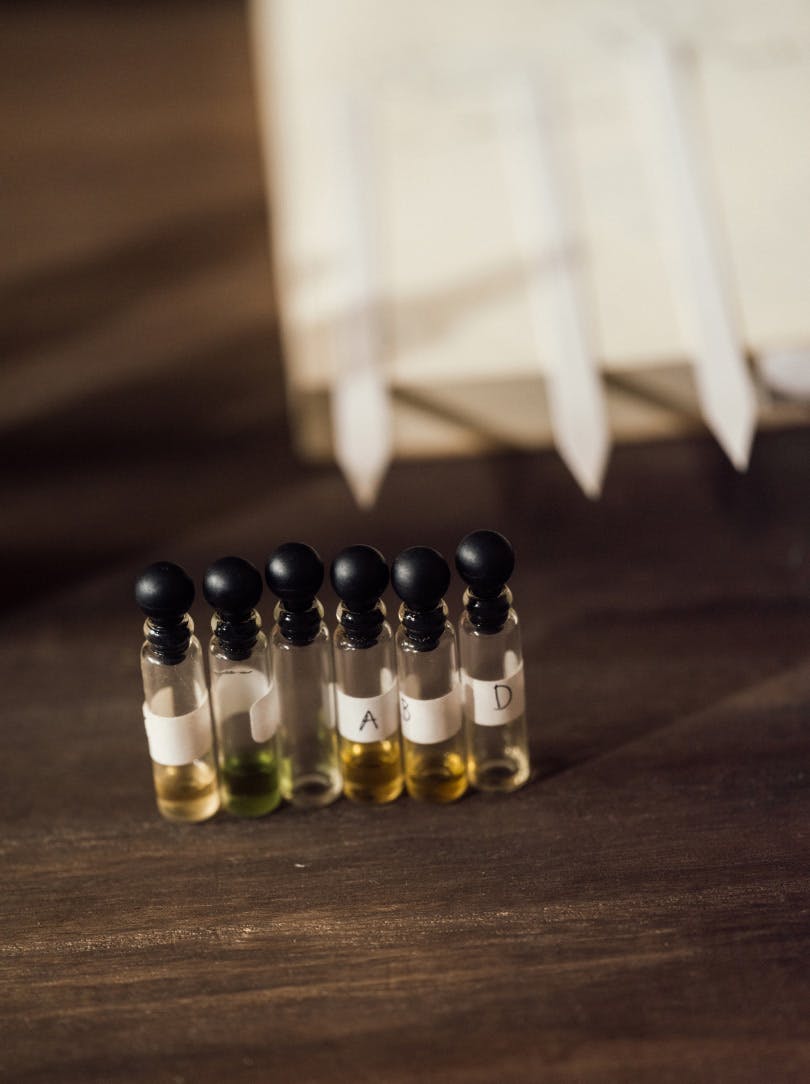
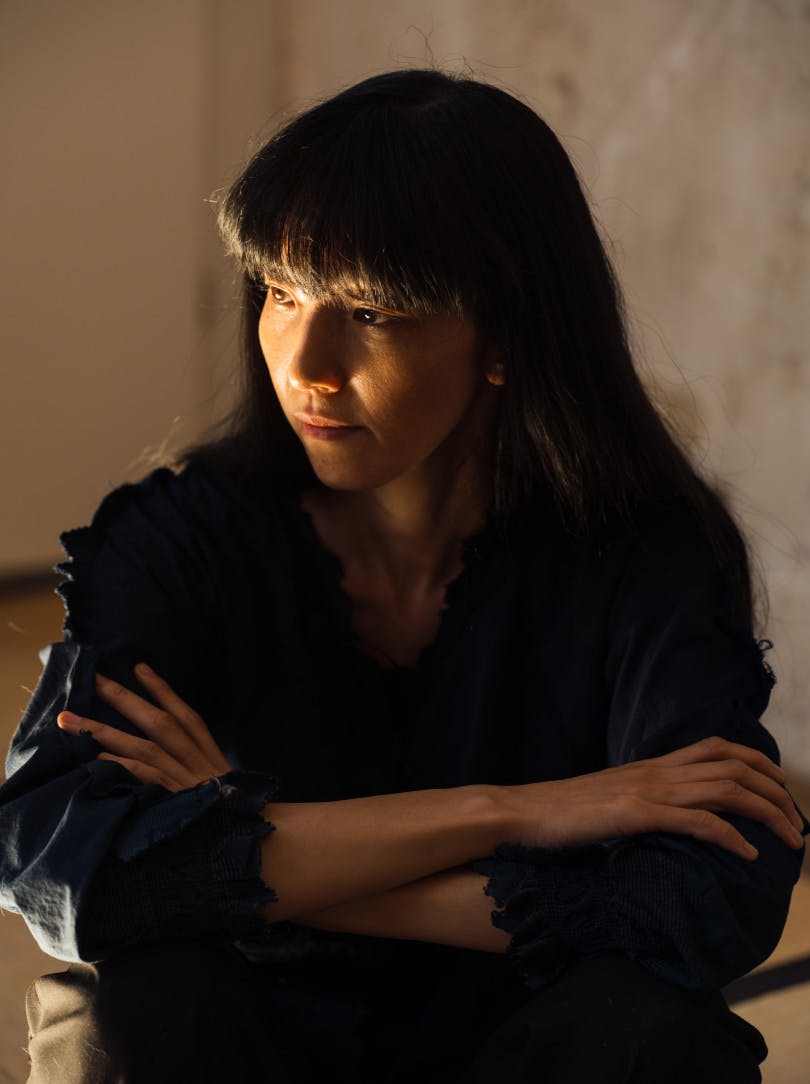
Scent has long played a part in different cultures, for hygiene and medicinal purposes but also spirituality and rituals. Coming from a secular Romanian-Jewish family, Daniel was well acquainted with the traditional rituals of high holidays, which his mother strongly believed in. “We were not religious, but we had to go to the synagogue, and we would celebrate the Sabbath,” he says. “I always enjoyed everything from the candle-lighting to singing to all the traditions that Jewish people have been doing for 5,000 years. I liked it very much. But I was also interested in other indigenous traditions from a young age; much more so than my brother. For me, it was always interesting what ritualistic things people did in other parts of the world.” These rituals, which left such a profound impression on the young Daniel, continue to play a big part in his life today: he burns pure oud or sandalwood incense daily and never travels without it, cleansing the air wherever he lands with his favourite familiar scents.
Similarly, Ryoko grew up going to the temple and the shrine, and celebrating many festivals over the year. Her father followed Shintoism, but later moved more towards Buddhism. “We embraced all kinds of tradition within daily life,” she says. “We eat certain things because of this or that celebration. Also, the appreciation of nature is deeply rooted in Japan. We see god in nature – the god of water, the mountain, the plant and, of course, the moon.”
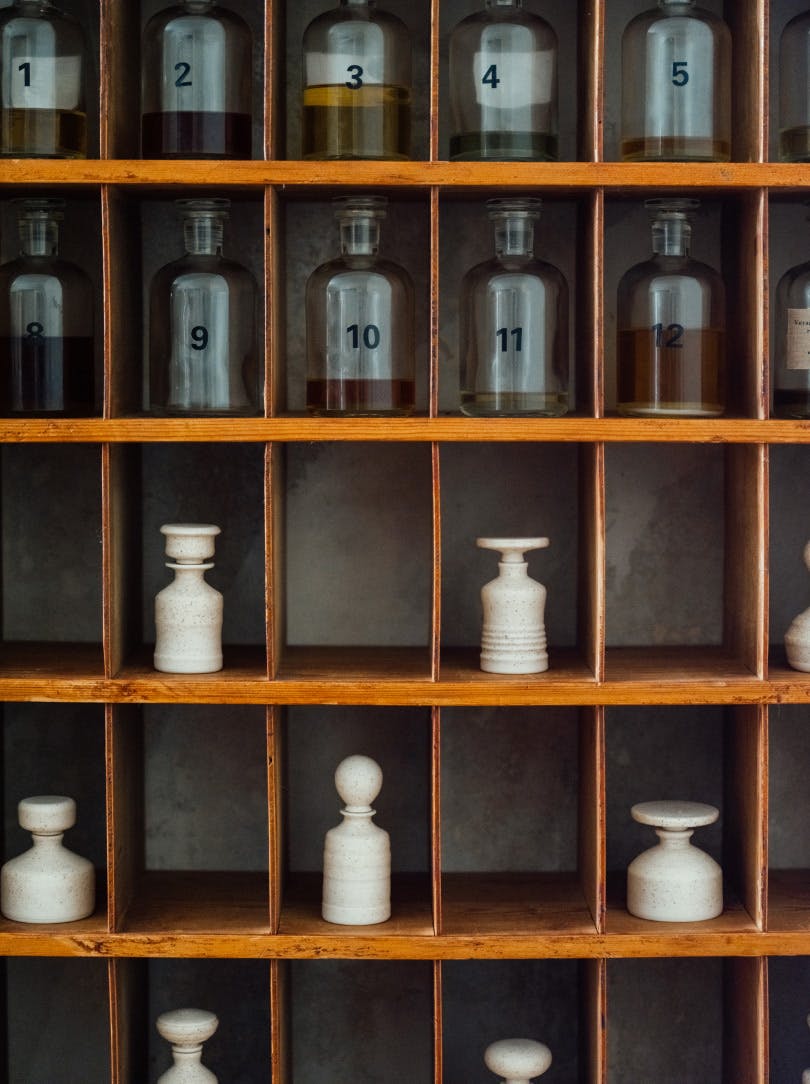
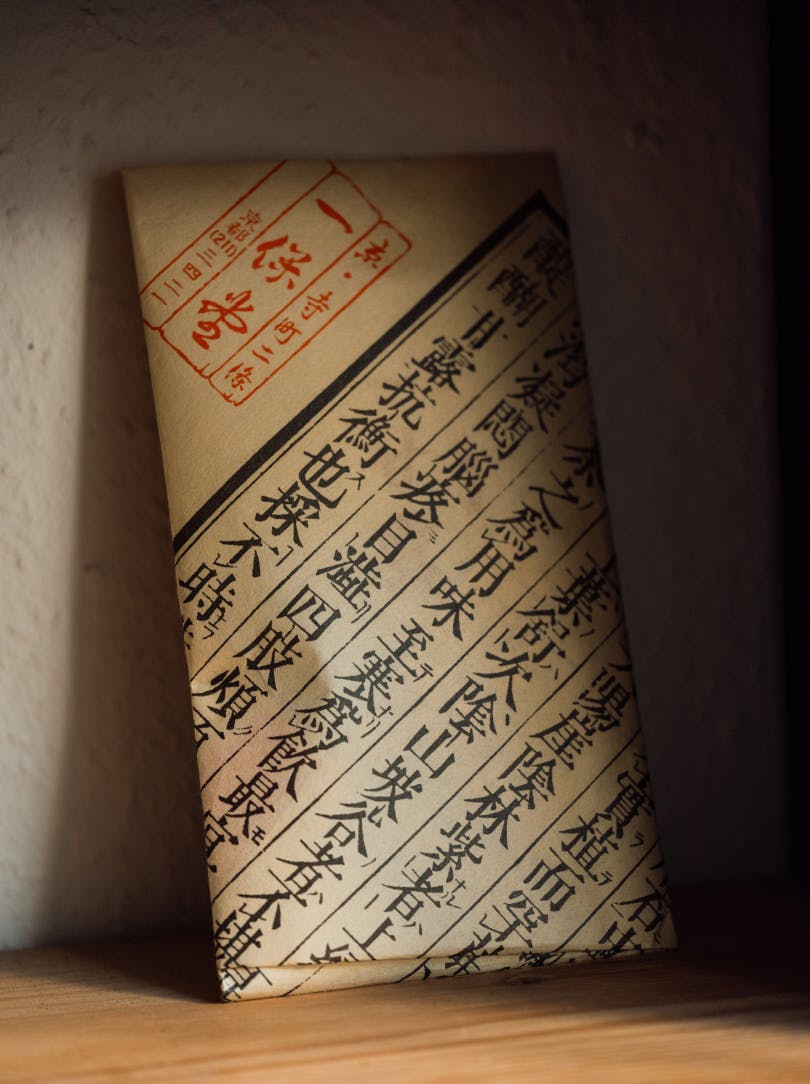
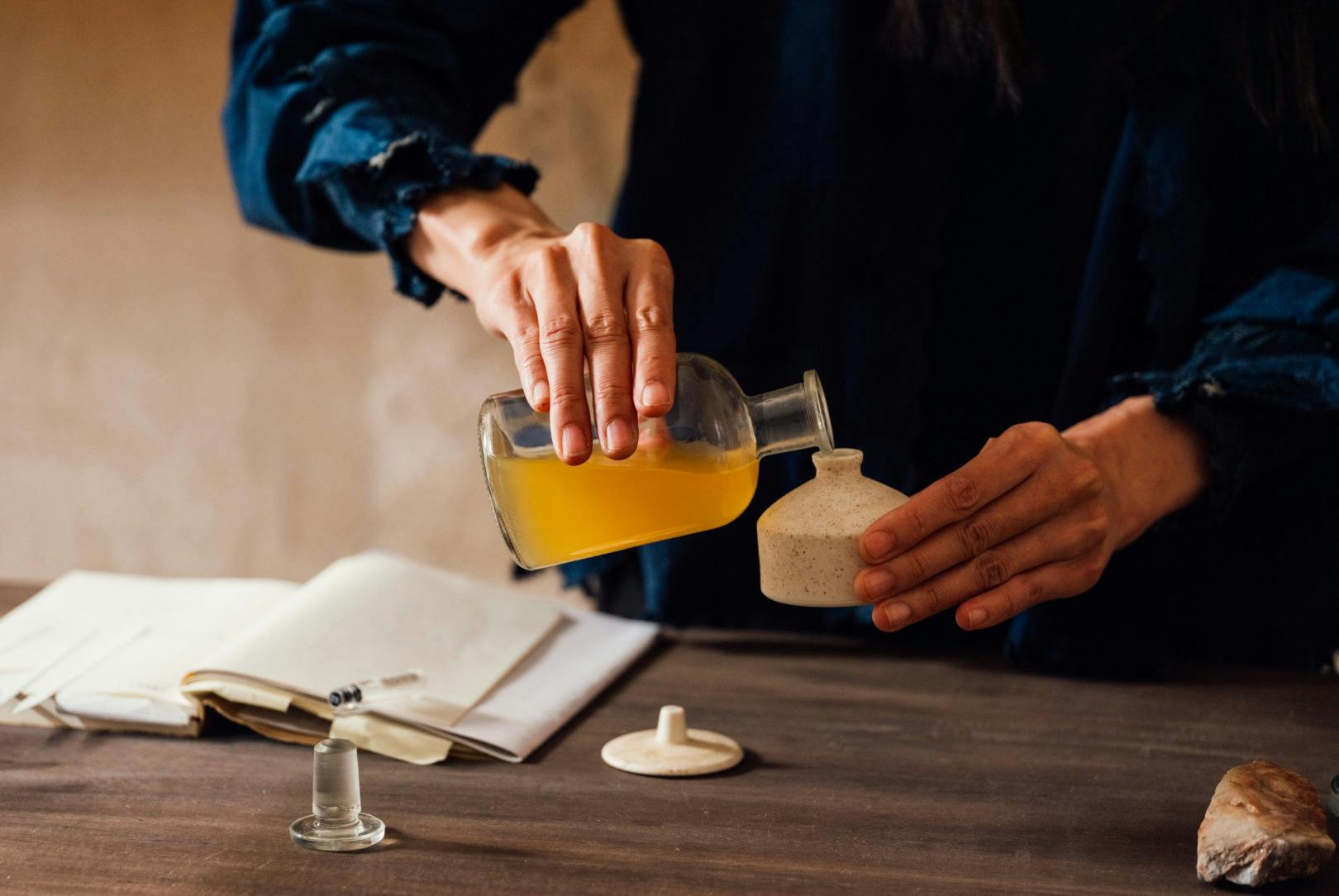
Various rituals are practised in a back room of their Neukölln boutique. A serene, elongated space paved with tatami mats plays host to tea ceremonies, incense rituals, Zen meditation, and other occasional workshops and events, including a Saké Members Club, instruction on how to apply Zen wisdom to modern life with a Japanese monk, and making your own seasonal herbal tonics. Ryoko’s extensive manual therapies, including therapeutic massage – a combination of deep tissue, Swedish, trigger point therapy, Shiatsu, remedial and myofascial release – a hydrating and exfoliating back treatment, cleansing and rejuvenating facials, foot peels and reflexology, are also carried out behind the salon, on offer only to a select number of their regular clients. Her training for these treatments took her from Japan to India to Australia, where she found the most specialised courses with respected teachers and gurus, but only after studying fashion design in Tokyo and Paris. “I worked for a fashion designer in Tokyo,” she says. “But working in Japan is very tough, and I later realised that I wanted to create a better life for myself. I wanted to study something soothing, that would be good for myself and my health. So, I started to study a Japanese healing system called Seitai. And I wanted to know more and more about the connection between the body and the mind.”
Daniel also started out in a vastly different field. He began work as a camera assistant, then a photographer. “Later on, I went to film school in England,” he says. “I worked as a cinematographer for television, then came back to Germany and worked for many years in filmmaking, travelling the world and exploring cultures. I am curious about human behaviour and stories. I liked the cinema and the arts from very early on.” When he found their current space in Neukölln, he says it was “good timing”. Ryoko was looking for somewhere to offer her massage therapy and he had left the film industry because it was “too stressful”. Despite having recently split up, they somewhat unexpectedly began sharing ideas on how to use the cavernous space together – hosting Zen retreats, pranayama classes and Kintsugi ceramic workshops – and it turned out to be exactly the career shift Daniel needed. “For a while,” Ryoko remembers, “it seemed we were the only ones in Berlin offering some of those things. They just weren’t available in Berlin then. People were intrigued; we had so much interest.”
Day to day, their dynamic is completely in tune with one another, working independently on some aspects, but always referring back to the other for advice. “For some projects I have more ideas,” Ryoko says slowly and thoughtfully. “But I always ask him what he thinks, then I change it according to his advice; for other projects it’s the other way round. We do everything together.” Daniel is quick to clarify that “of course Ryoko has more experience than me when it comes to plants. Her olfactive archive in her head is much more developed than mine, so it may be that she starts with an idea, but then I’ll jump in, too. But there are things that only one of us will do – photography is me, programming is her, for example. We’re like a studio. We work on everything together, just the two of us – the concept, the curation of objects, the website. It’s all in-house.”
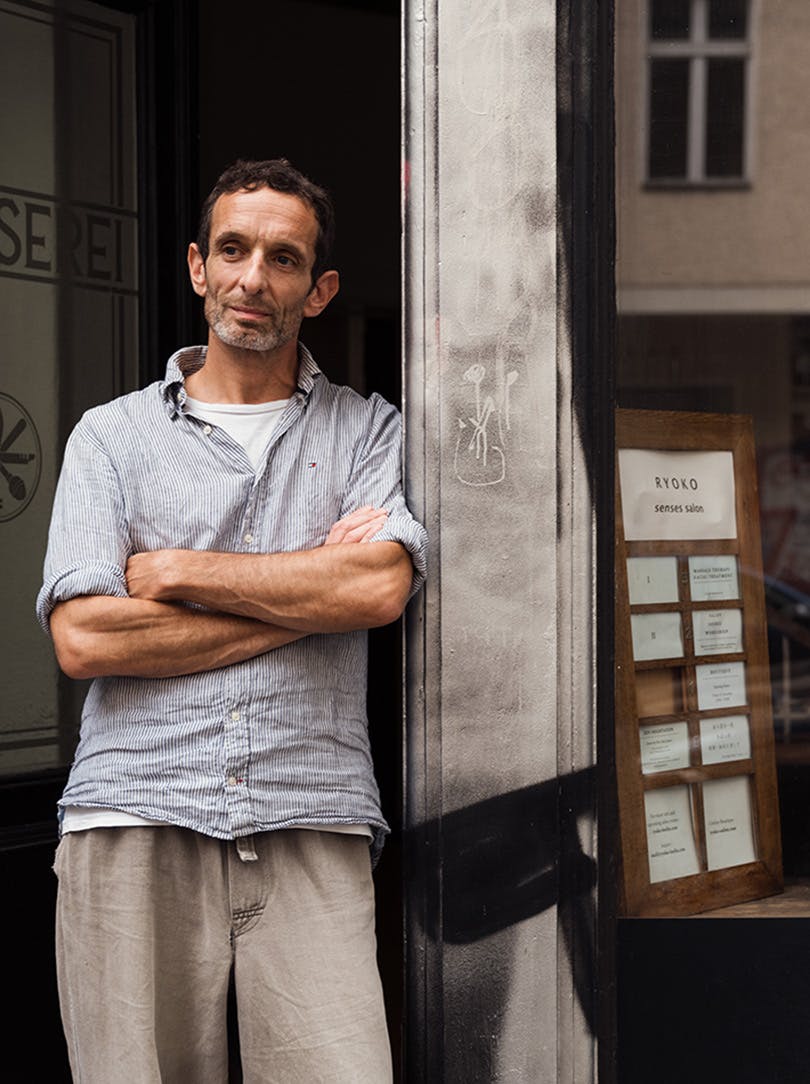
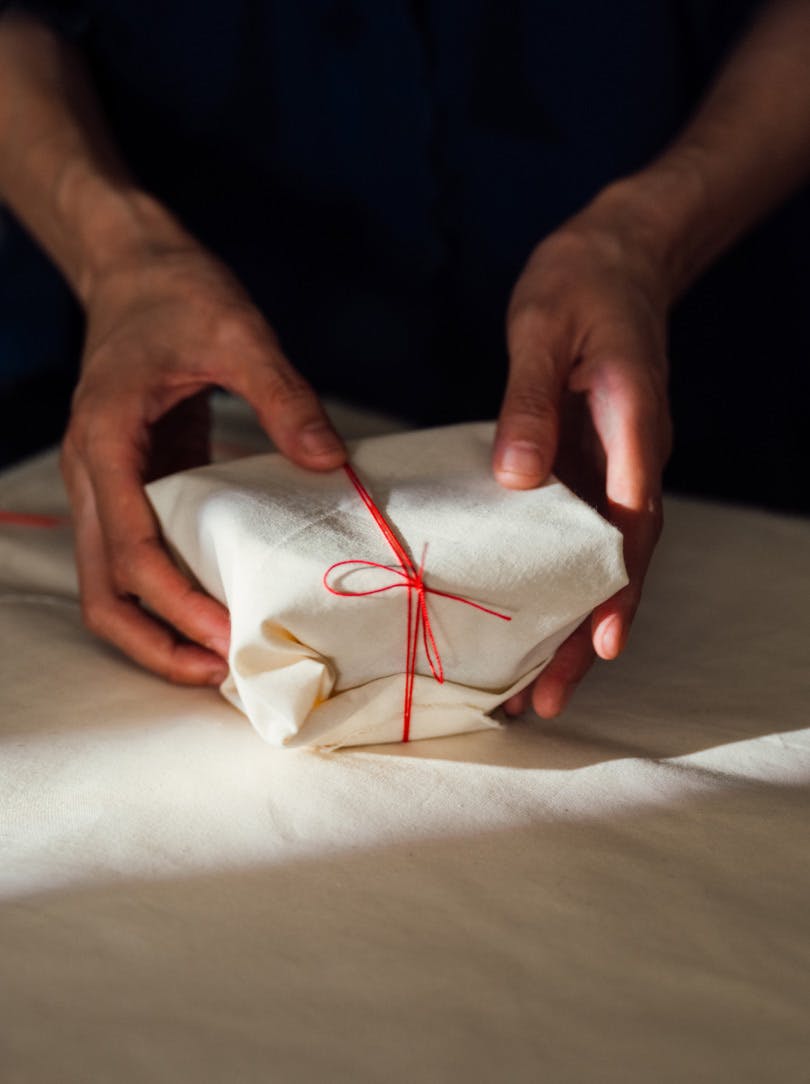
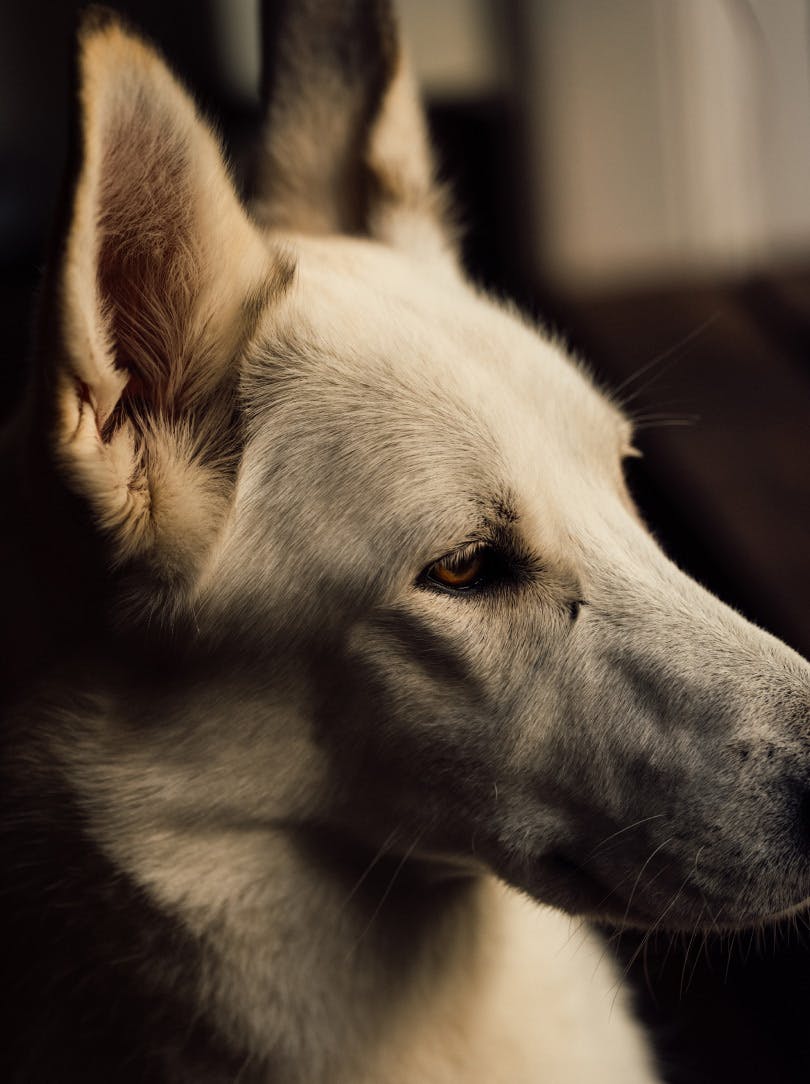
As our conversation draws to a close, we sit near the shop window, looking out onto the busy street and its overcast warmth. Ryoko and Daniel comfortably share the wooden bench that Lumi favours for her sentry post. As always, she’s never far from them, her luxuriously soft white fur in harmony with the earthy-coloured interior and pure botanical aromas. Ryoko hands out green tea from a tray in delicate, imperfectly formed ceramic vessels. Their lives are content. Daniel most enjoys “just hanging out with Ryoko and curating and developing things together. We are so different, but it works so well. It’s really a privilege”. She smiles and nods: “We’re lucky to have a different way to work. It makes us feel lucky – and free.” Daniel agrees wholeheartedly. “Exactly, this freedom,” he repeats. “There is such a sense of freedom in what we do.” And that is something we take with us, too, as we emerge, blinking, from their rarified universe back into the daylight reality of Berlin-Neukölln – revived, renewed and with an inner sense of freedom.
